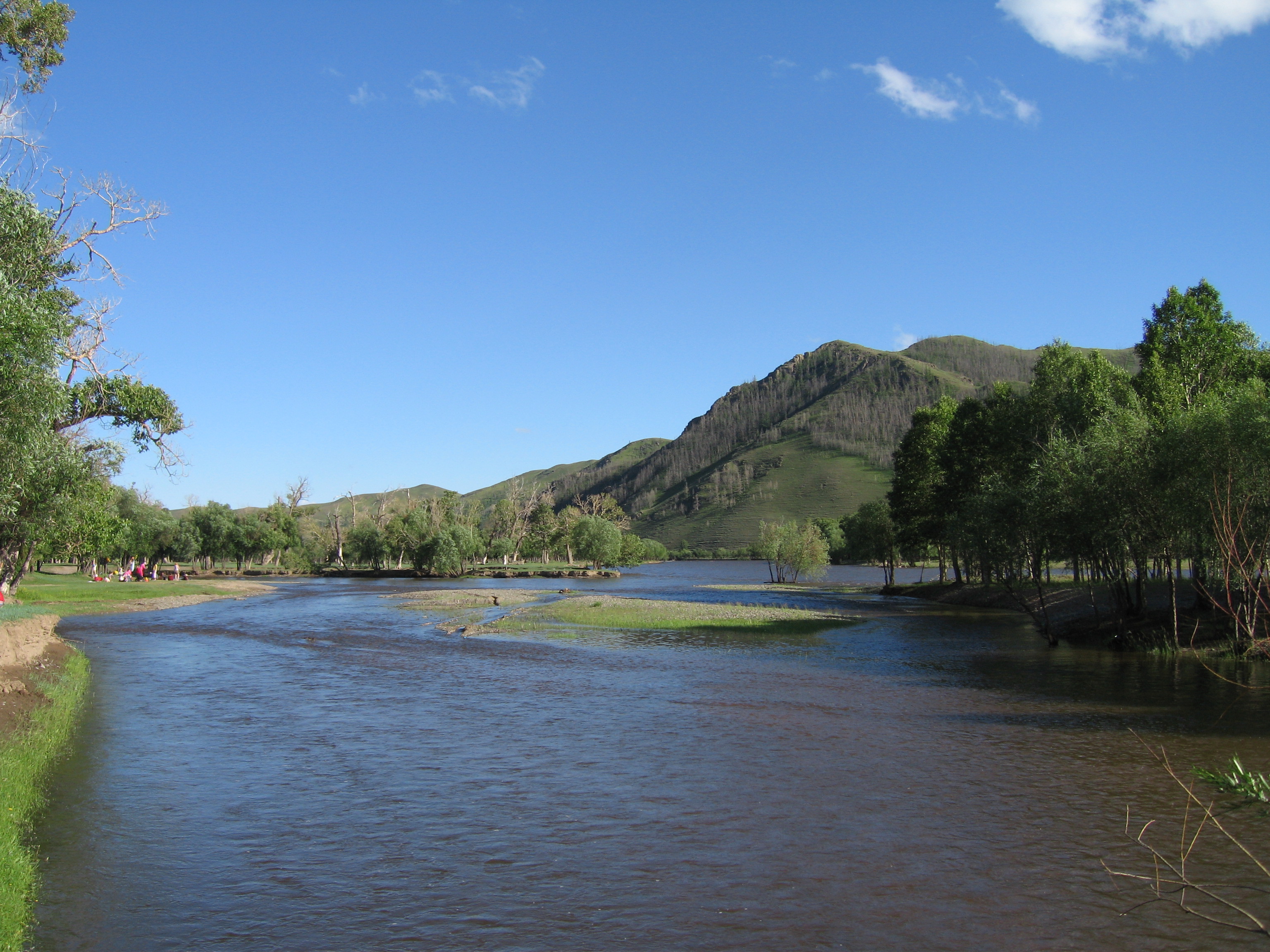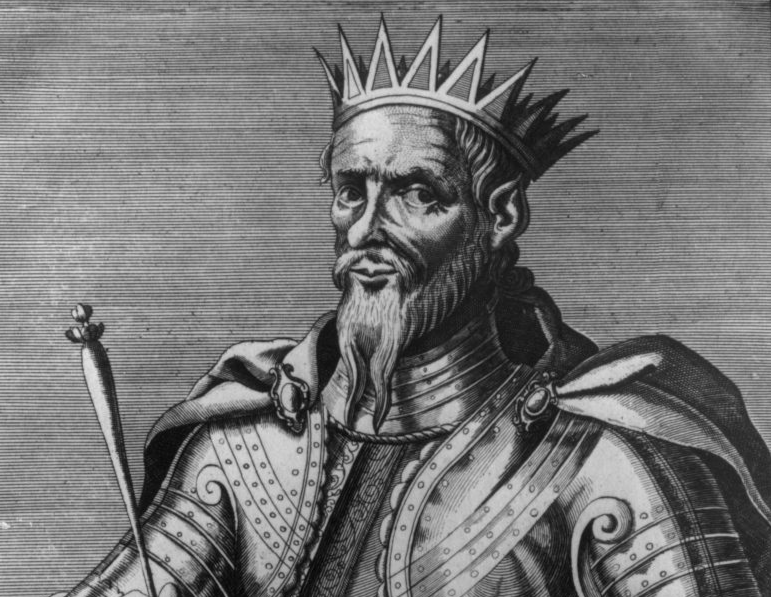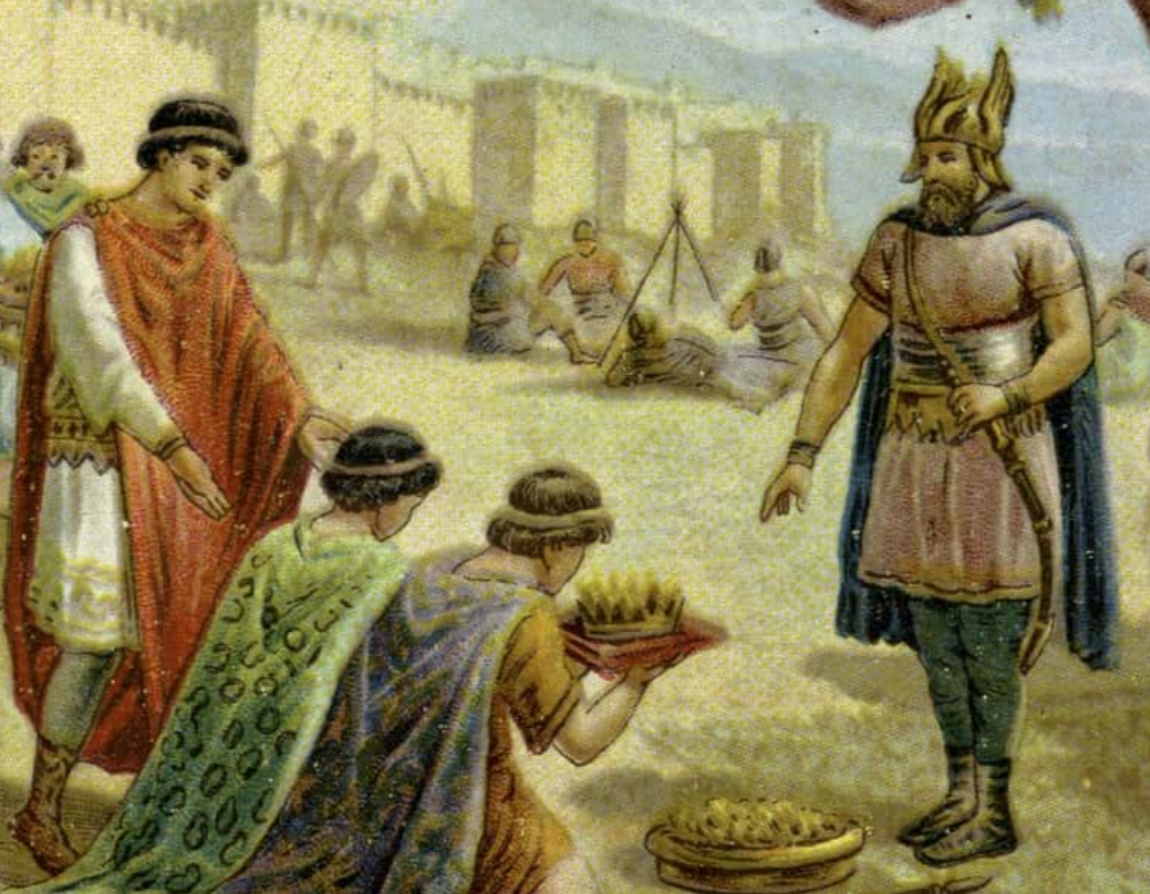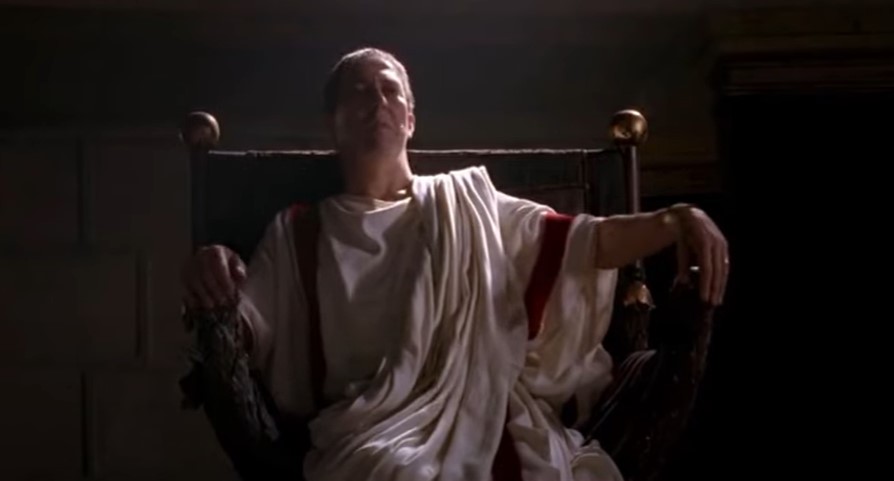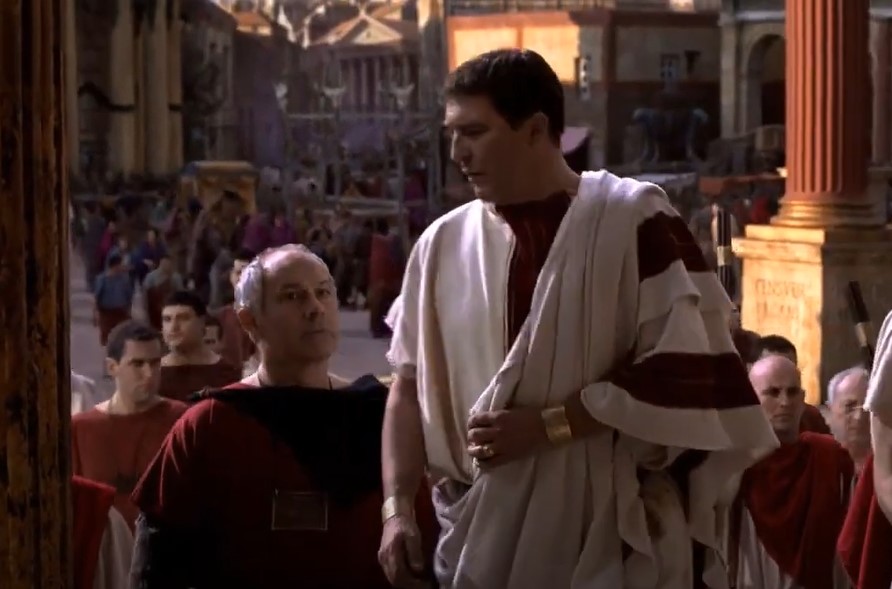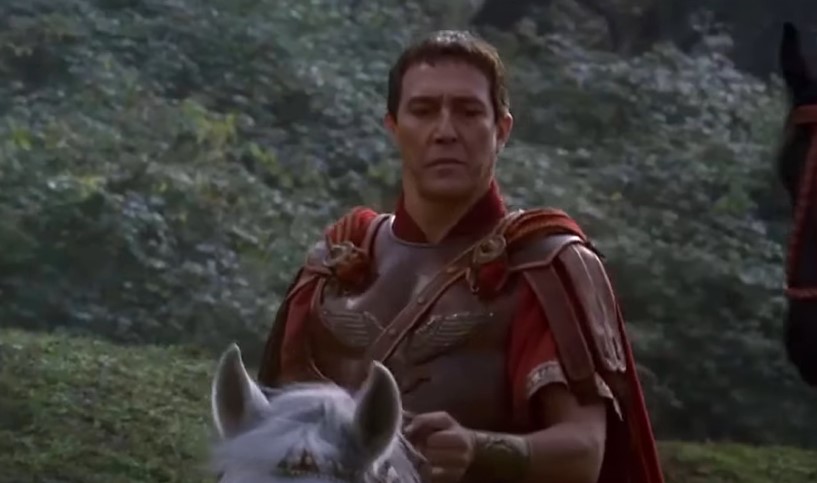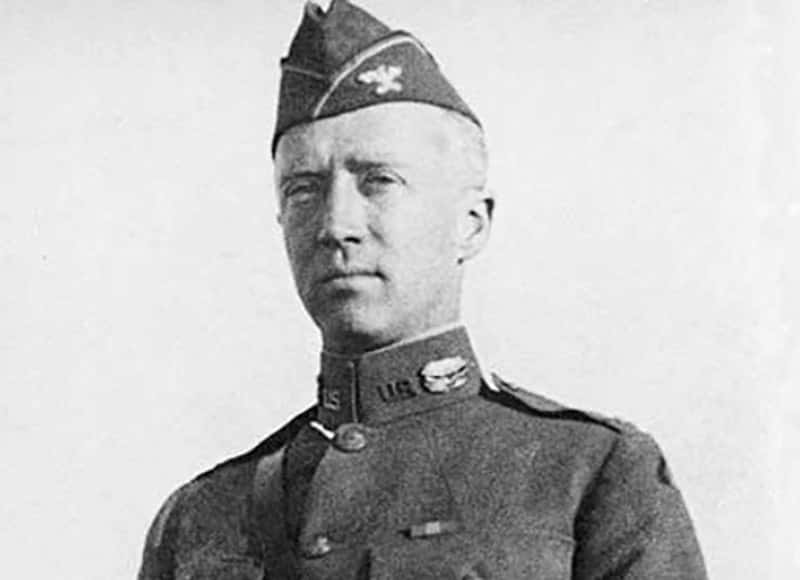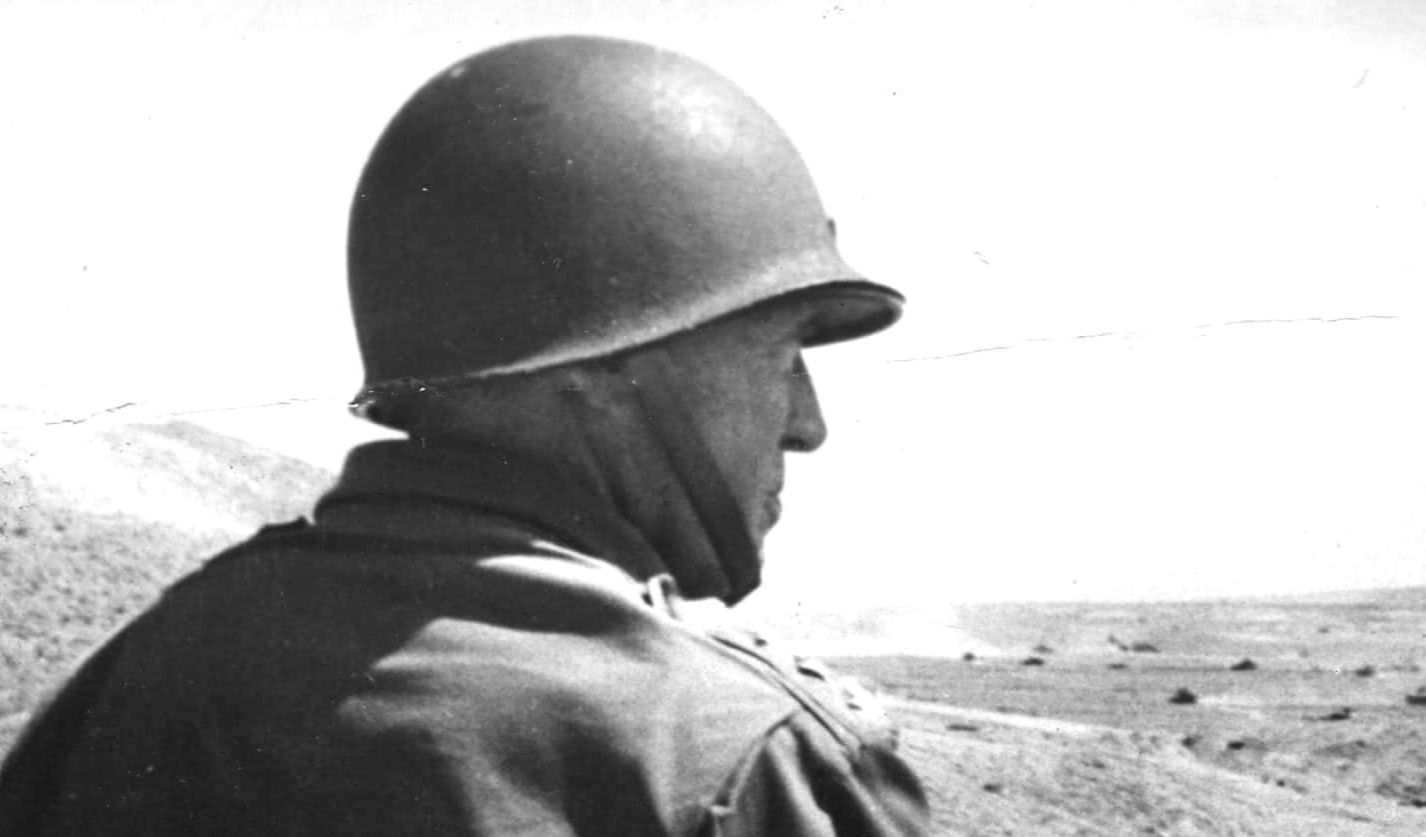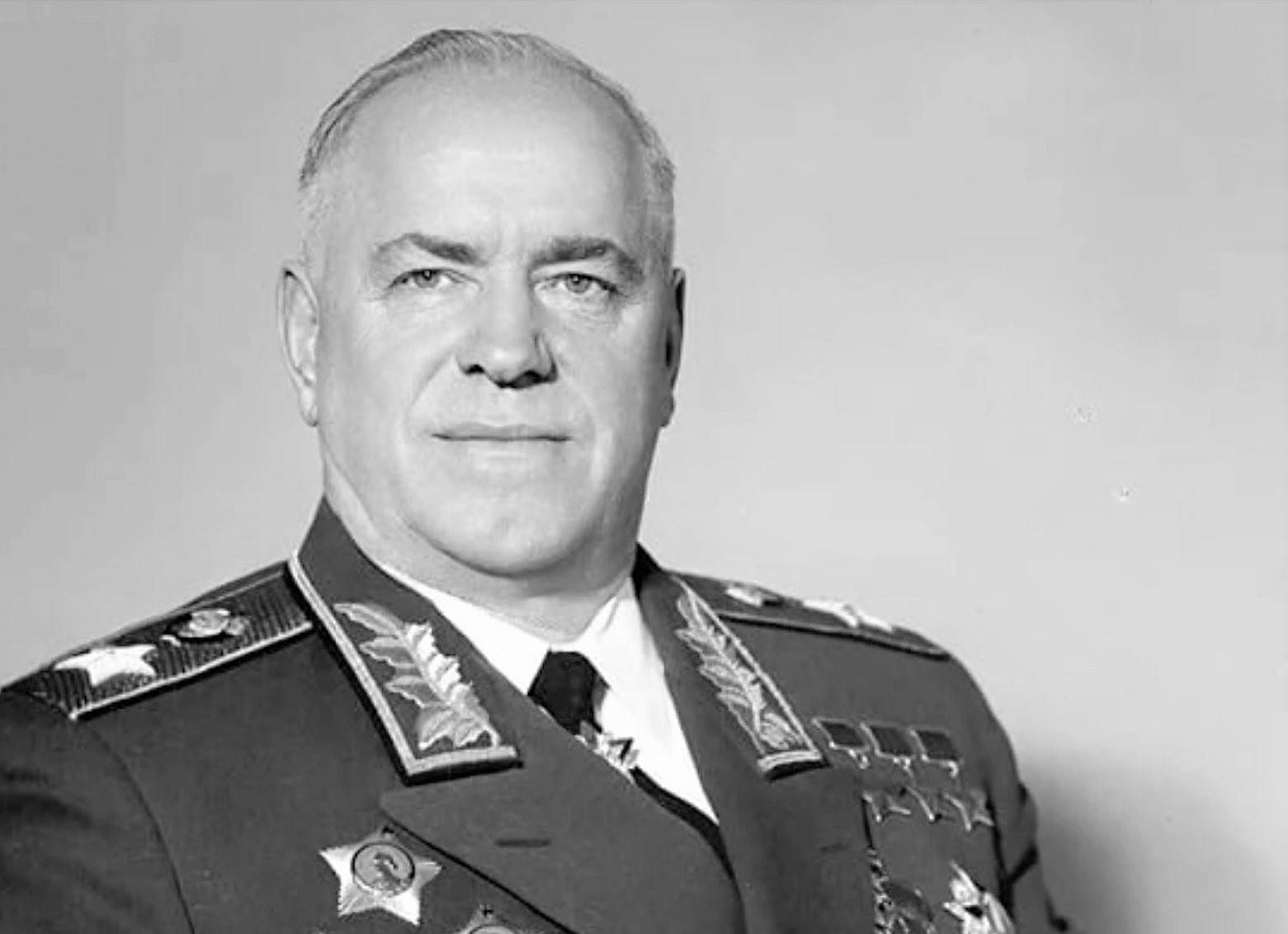The Best Of The Best
Alexander. Attila. Napoleon. Hannibal. Patton. What does it take to have your name etched on history?
Be it Patton's organization, Nelson's daring, or Belisarius's unbelievable cunning, these are the greatest military geniuses in history.
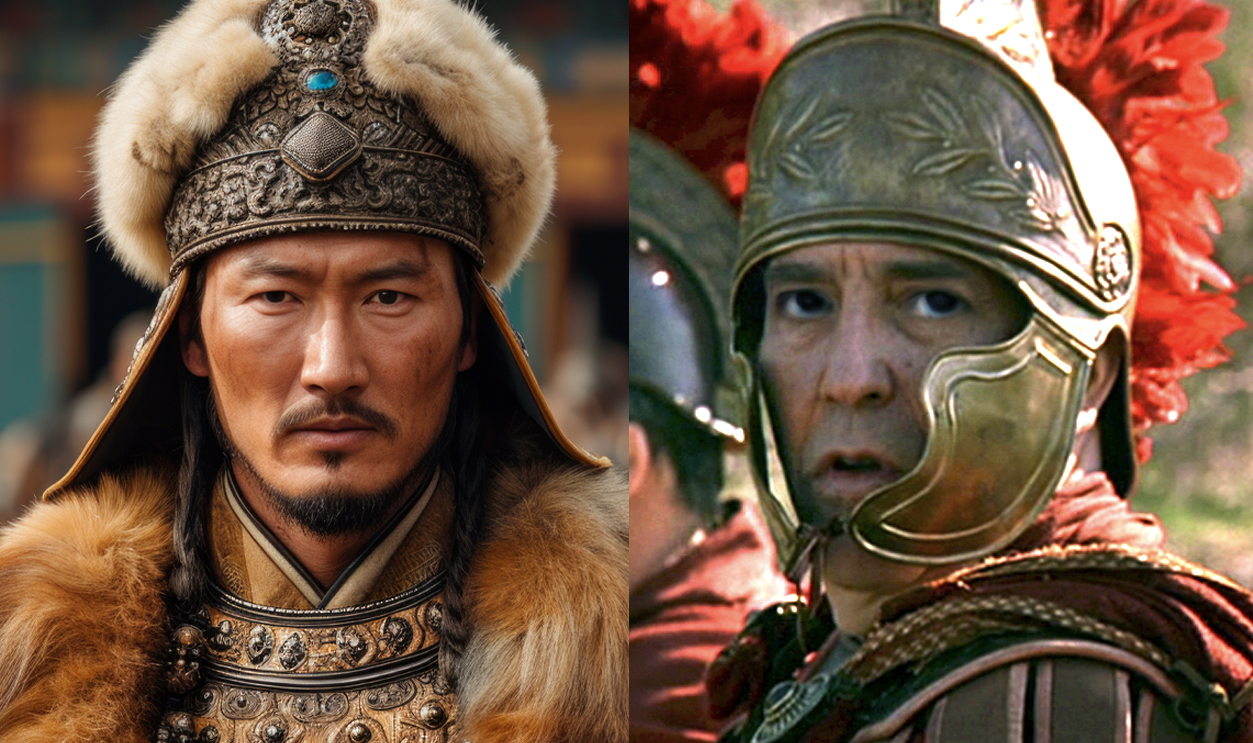
Alexander The Great
From the moment he became king, Alexander the Great set off on a military campaign that saw him create the biggest empire the world had ever seen, reaching as far east as India before his men mutinied and forced him to turn back. In all that time, he never lost a single battle.
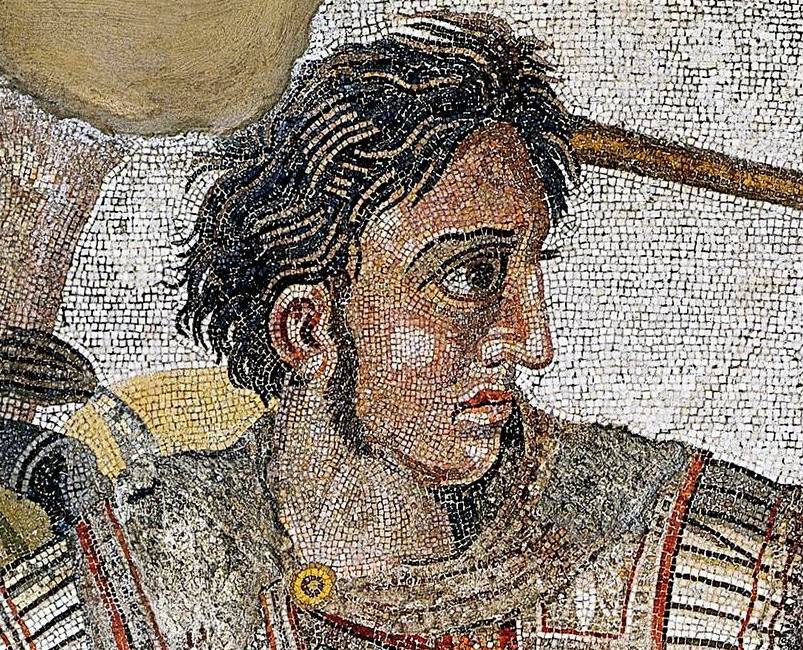 Unknown Author, Wikimedia Commons
Unknown Author, Wikimedia Commons
Greatest Victory: The Battle Of Gaugamela
Alexander was vastly outnumbered when he faced King Darius II of Persia at Gaugamela, but his brilliant tactics won the day. Darius fled the field, and was eventually eliminated by his own men.
Alexander was crowned emperor, and continued on the warpath for another eight years.
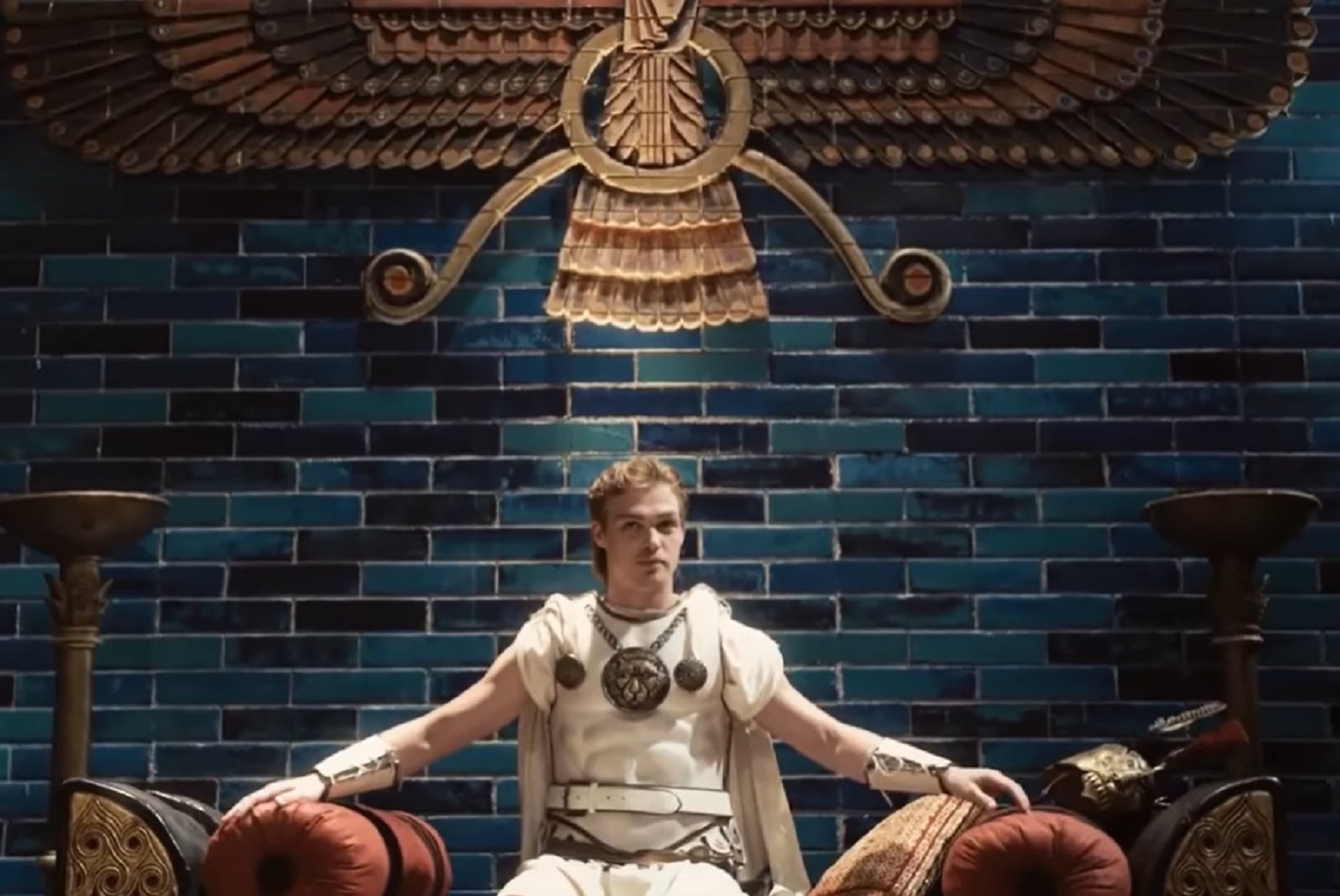 Gruppe 5, Alexander the Great (2014)
Gruppe 5, Alexander the Great (2014)
How Did It End?
After his men mutinied near the Indus river, Alexander began the long, miserable trip back west. He made it as far as Babylon when he fell ill—unsurprising after over a decade on campaign—and died after days of fever, never seeing his homeland again.
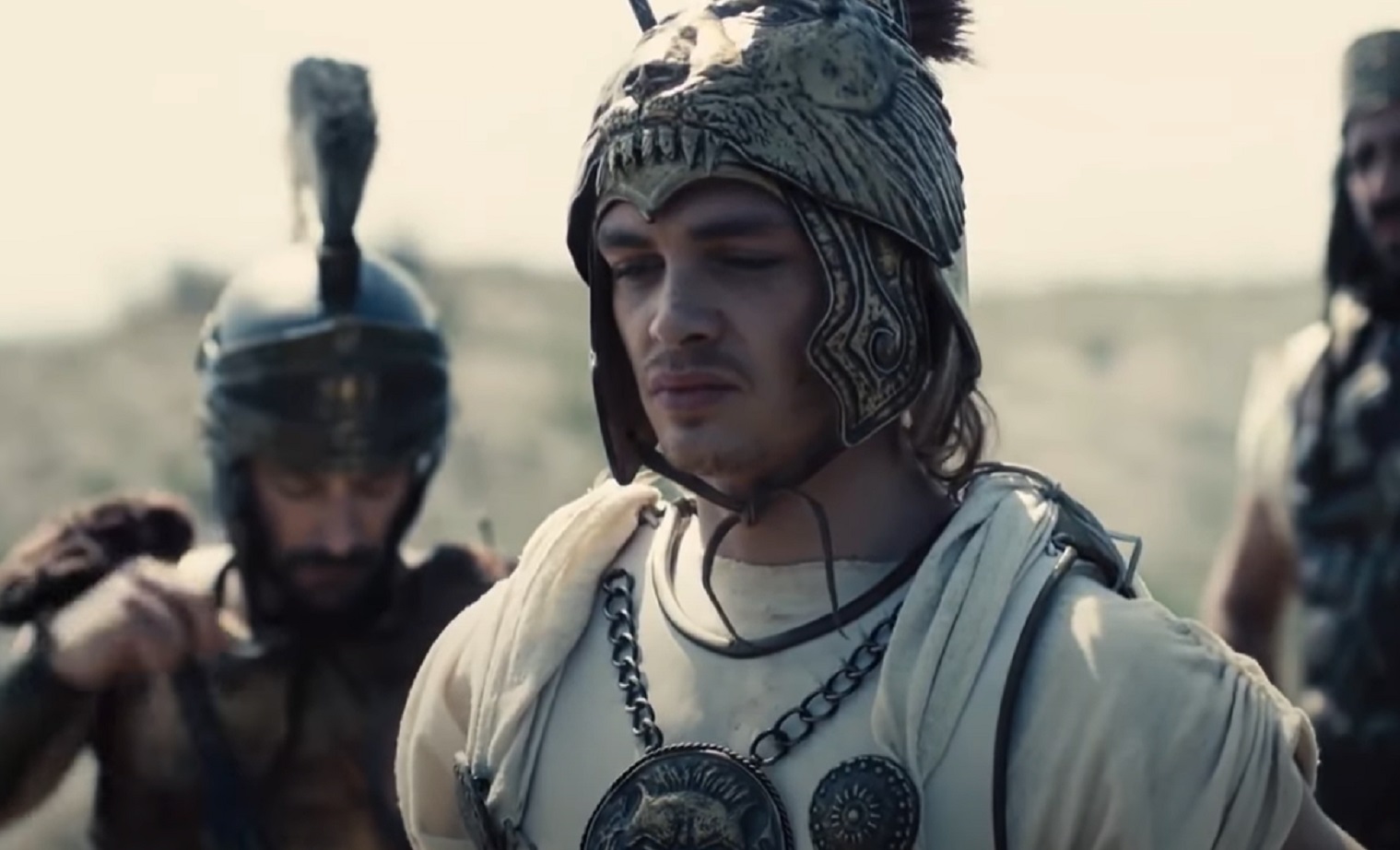 Gruppe 5, Alexander the Great (2014)
Gruppe 5, Alexander the Great (2014)
His Final Words Were Legendary
According to legend, before he gave his last breath, Alexander's generals asked him who should receive his vast empire. He responded with his three final words: "To the strongest". His generals would fight over his territory for the next 40 years.
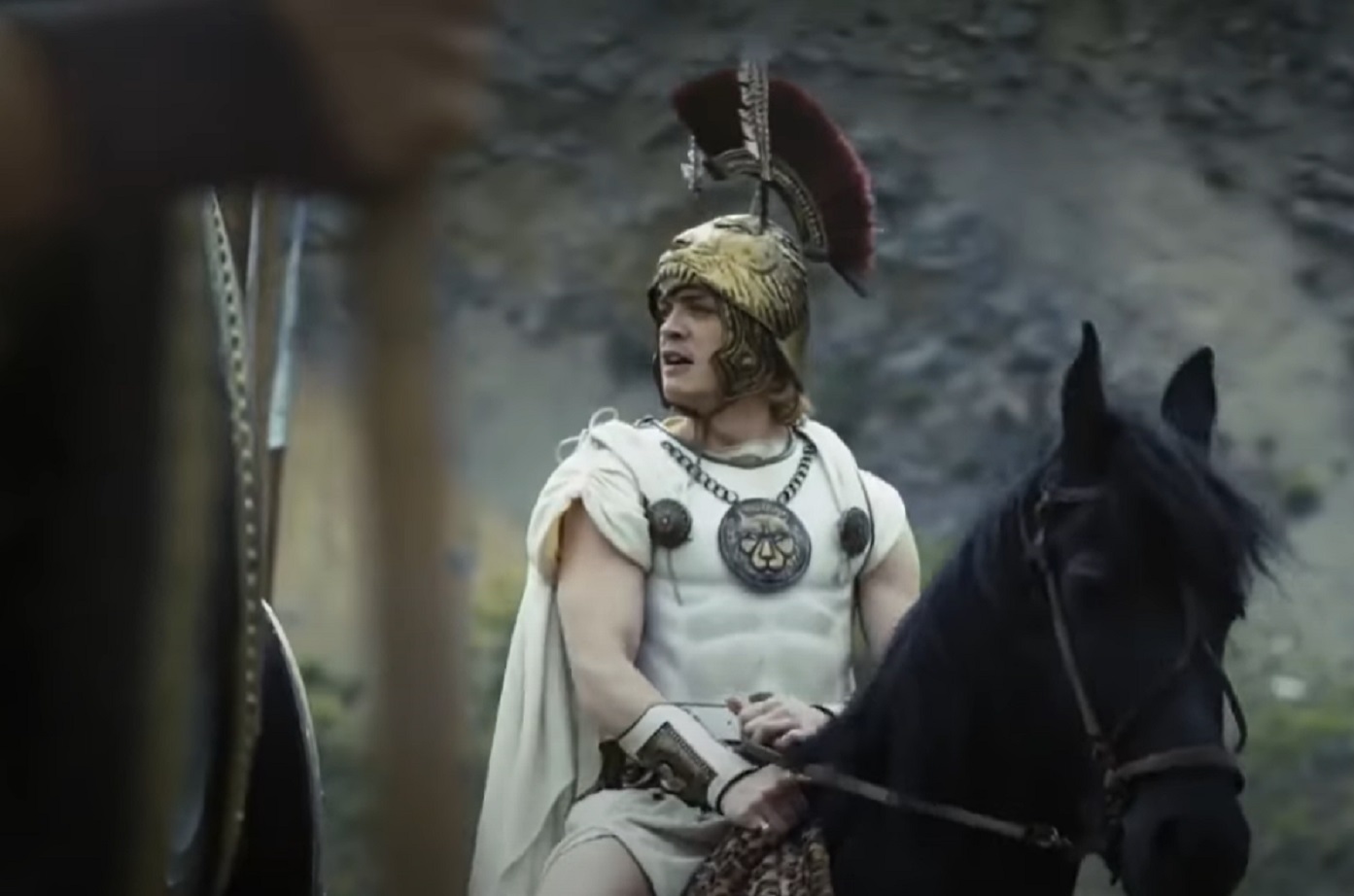 Gruppe 5, Alexander the Great (2014)
Gruppe 5, Alexander the Great (2014)
Hannibal
When he was a boy, the Carthaginian general Hannibal had to swear to his father that he would "never be a friend to Rome". He kept that promise and then some.
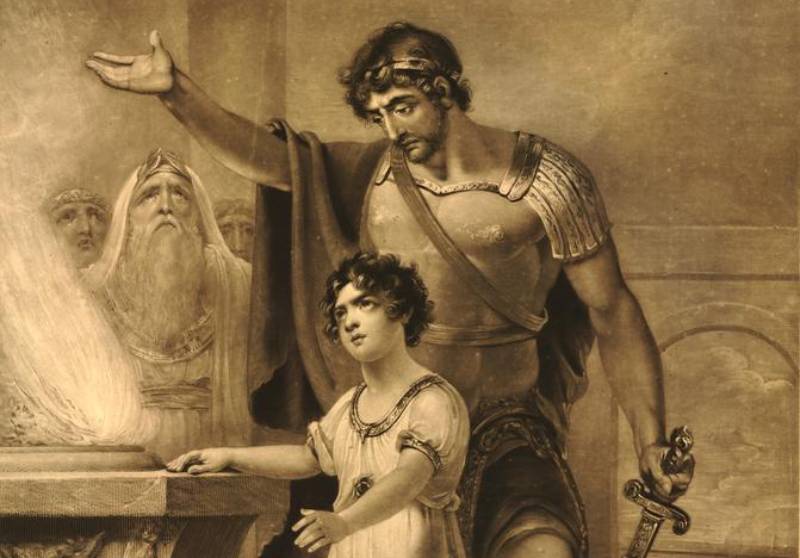 Charles Turner, Wikimedia Commons
Charles Turner, Wikimedia Commons
He Squatted In Italy For 15 Years
After his unfathomable crossing of the Alps into Italy—with war elephants no less—Hannibal laid a path of destruction, wreaking havoc in Roman lands for 15 years.
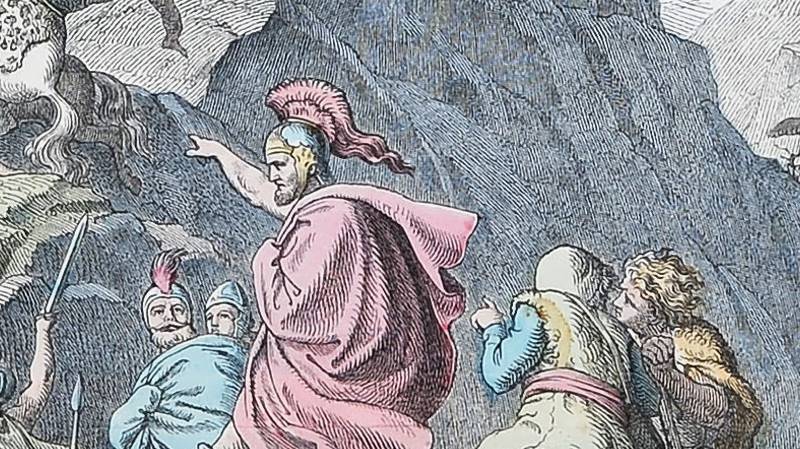 Heinrich Leutemann, Wikimedia Commons
Heinrich Leutemann, Wikimedia Commons
Greatest Victory: The Battle Of Cannae
Widely considered both one of the most remarkable tactical victories in history, as well as perhaps the worst defeat Rome ever suffered, Hannibal's legendary "double pincer movement" allowed him to almost completely annihilate a much larger Roman force.
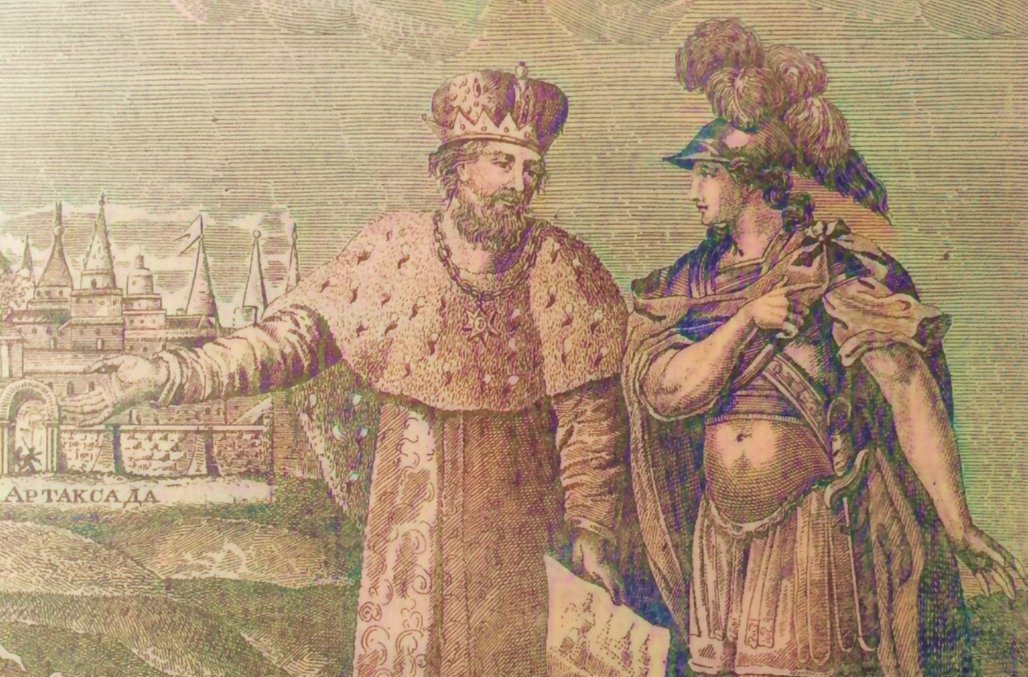 Unknown Author, Wikimedia Commons
Unknown Author, Wikimedia Commons
How Did It End?
Despite his many victories, Hannibal was stranded in Italy and couldn't get reinforcements, so he could never finish the job. Rome eventually invaded Carthage and won the war, forcing Hannibal into exile. But he never forgot about the oath he made when he was a boy.
 Giovanni Antonio Pellegrini, Wikimedia Commons
Giovanni Antonio Pellegrini, Wikimedia Commons
He Went Out On His Terms
After several decades in exile, Hannibal was betrayed to the Romans, and he poisoned himself rather than end up in their hands.
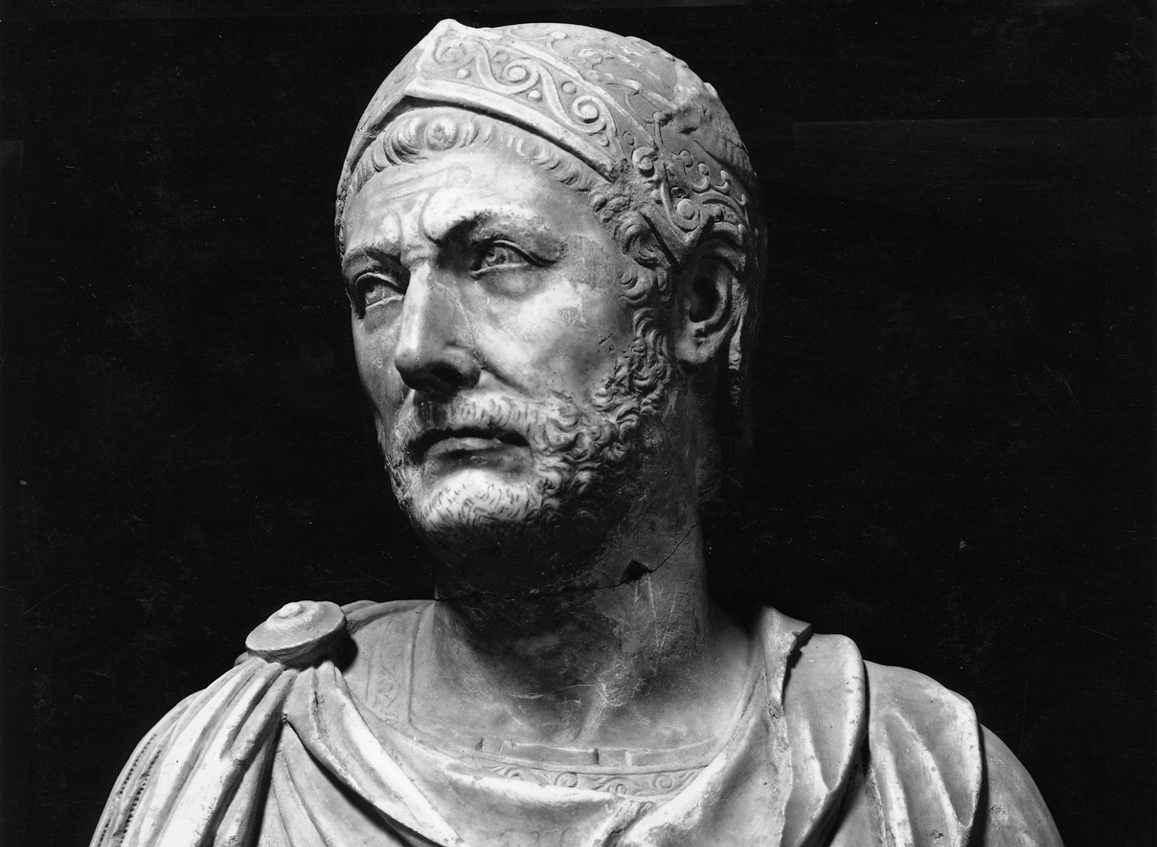 Fratelli Alinari, Wikimedia Commons
Fratelli Alinari, Wikimedia Commons
Napoleon Bonaparte
After becoming a national hero during the War of the First Coalition, Napoleon quickly gained both military and political power, being named Emperor of the French in 1804 and building an empire that spanned France, Germany, Austria, Italy, and Spain.
 Jacques-Louis David, Wikimedia Commons
Jacques-Louis David, Wikimedia Commons
Greatest Victory: The Battle Of Austerlitz
Like Cannae for Hannibal and Gaugamela for Alexander, the Battle of Austerlitz was the victory that cemented Napoleon as one of the greatest military geniuses the world has ever seen.
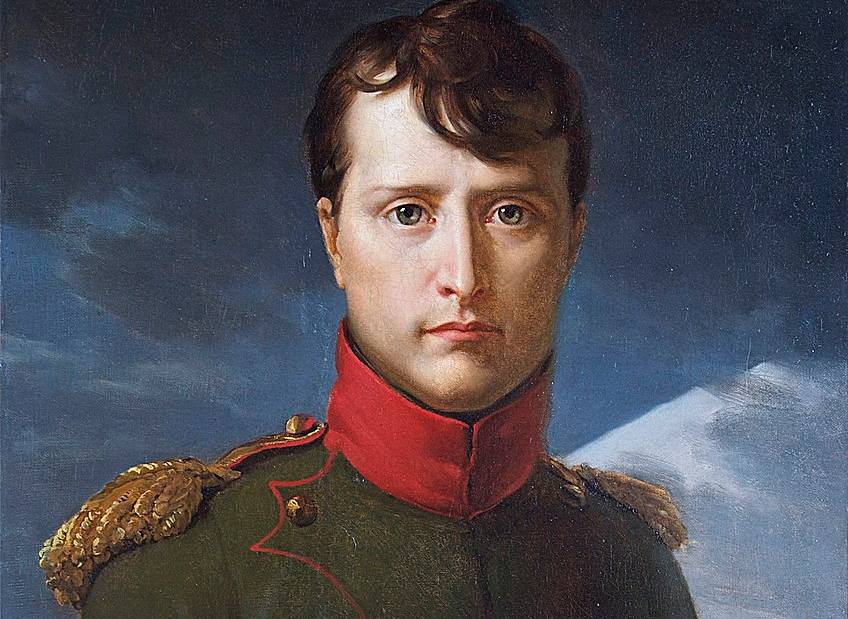 François Gérard, Wikimedia Commons
François Gérard, Wikimedia Commons
He Played A Trap Card
Napoleon, though outnumbered deceived his enemy to think his force was weak and ill-prepared. But as soon as the Austrian and Russian forces attacked, he sprung his trap. Over 20,000 men lost their lives, and Napoleon took thousands more prisoner.
The battle effectively ended the Holy Roman Empire, which had existed since the days of Charlemagne.
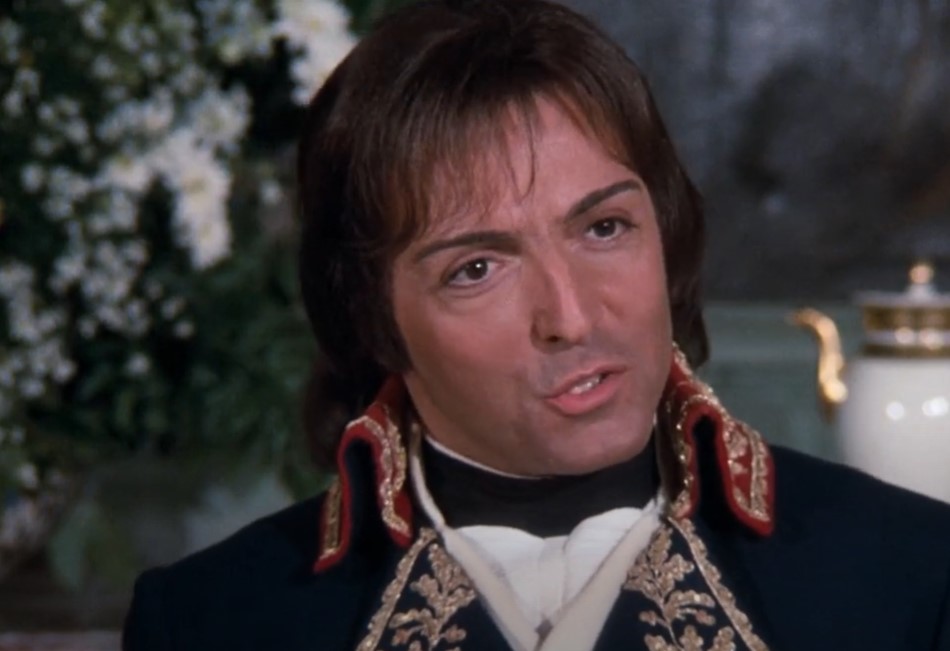 Warner Bros., Napoleon and Josephine: A Love Story (1987)
Warner Bros., Napoleon and Josephine: A Love Story (1987)
How Did It End?
After his disastrous invasion of Russia, Napoleon lost decisively at the Battle of Leipzig. He was first exiled to Elba, but he escaped and took control of France again for 100 days. After losing again at the Battle of Waterloo, they exiled him for good to the remote island of Saint Helena, where he succumbed to stomach cancer six years later.
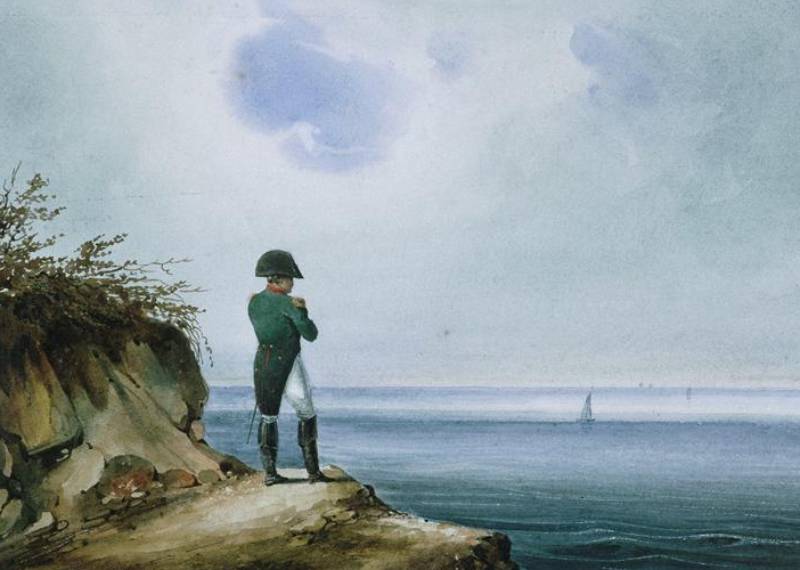 František Xaver Sandmann, Wikimedia Commons
František Xaver Sandmann, Wikimedia Commons
Subutai
Genghis Khan created the largest contiguous empire in human history, but he could only do it because of the brilliance of Subutai, his military strategist.
Subutai's complex strategies often involved coordinated movements between armies that operated hundreds of miles apart, and they helped him conquer more territory than any other commander in history.
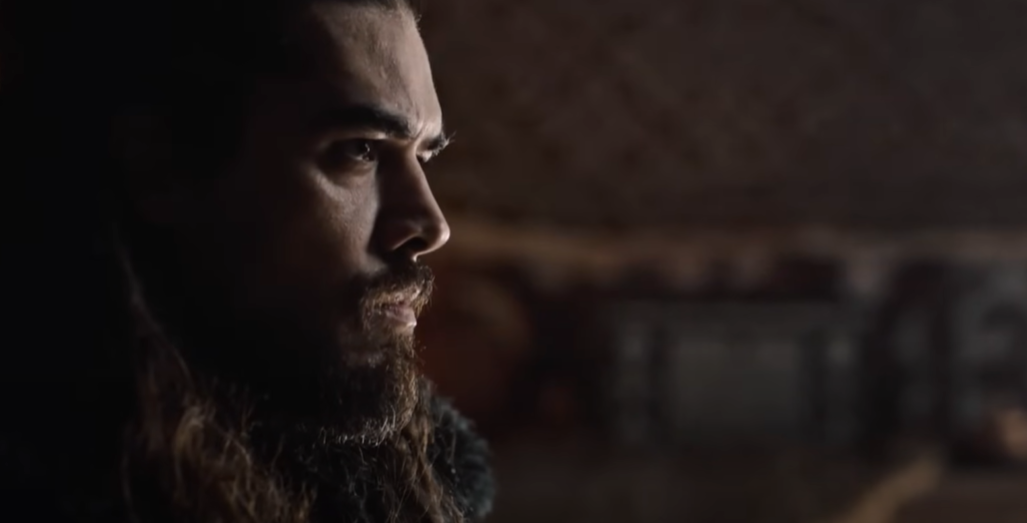 Ikinci Yeni Film, "Tarihin Efsaneleri" Subutay (TV Episode)
Ikinci Yeni Film, "Tarihin Efsaneleri" Subutay (TV Episode)
Greatest Victory: The Battle Of Mohi
The Kingdom of Hungary fielded heavy infantry and crossbowmen against Subutai's horse archers and stone throwers at the Battle of Mohi. They also outnumbered the Mongols more than two to one. They also had the superior position, protected by the Sajó River. What could go wrong?
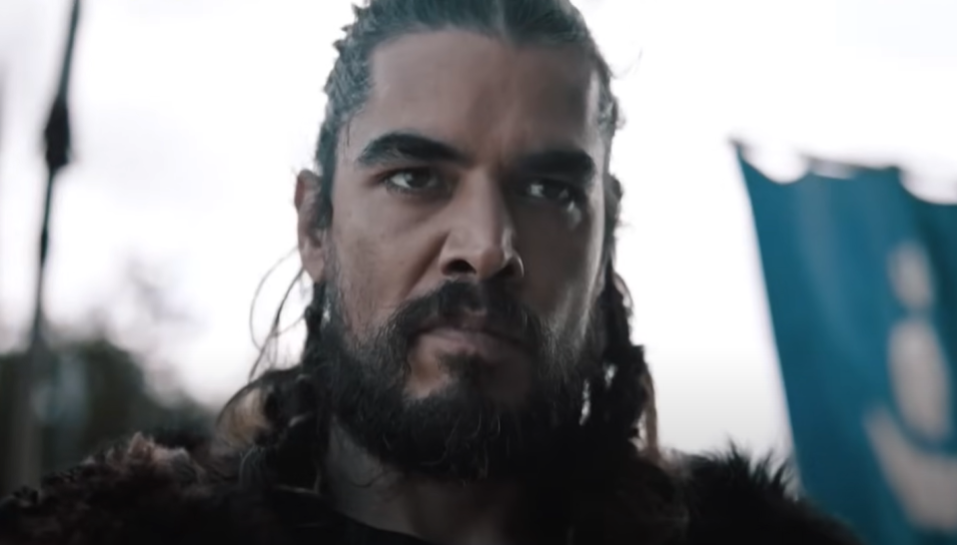 Ikinci Yeni Film, "Tarihin Efsaneleri" Subutay (TV Episode)
Ikinci Yeni Film, "Tarihin Efsaneleri" Subutay (TV Episode)
They Never Saw It Coming
The Hungarians never expected the three-pronged attack by Subutai and the other Mongol generals: An attack at the main bridge, a small force that forded the river to the North, and Subutai from the south, who had built a makeshift bridge and crossed the river, taking the Hungarians completely by surprise and wiping out nearly their entire force.
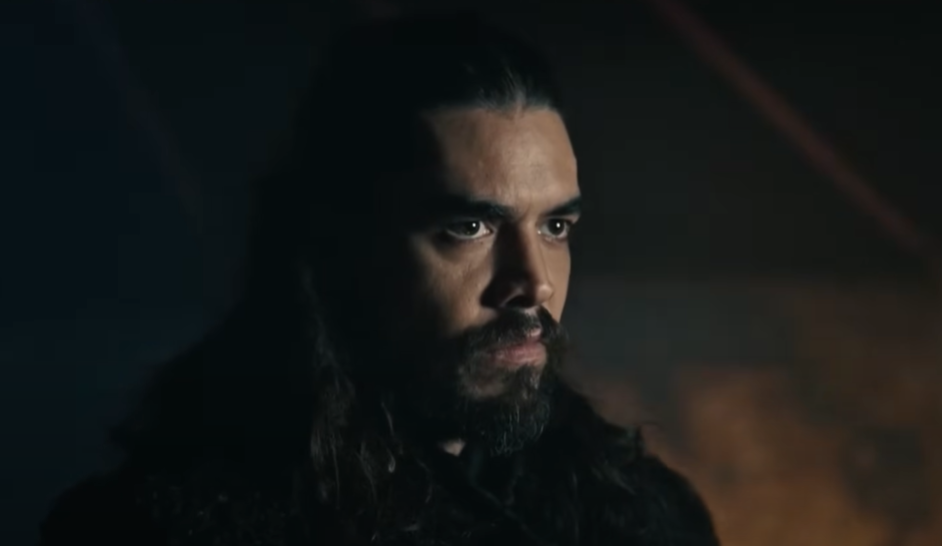 Ikinci Yeni Film, "Tarihin Efsaneleri" Subutay (TV Episode)
Ikinci Yeni Film, "Tarihin Efsaneleri" Subutay (TV Episode)
How Did It End?
Subutai lived to be an old man, eventually retiring to his home near the Tuul River in Mongolia, where he died peacefully at the age of 72.
Frederick the Great
For a moment, it seemed like Prussia was bound to become another European superpower—and it's entirely thanks to one man: Frederick the Great. He rose to prominence leading the Prussians in the Silesian Wars, where he ran circles around his Austrian enemies and annexed most of Silesia for himself.
He later became one of history's most important military theorists, drawing on his own extensive experience in battle.
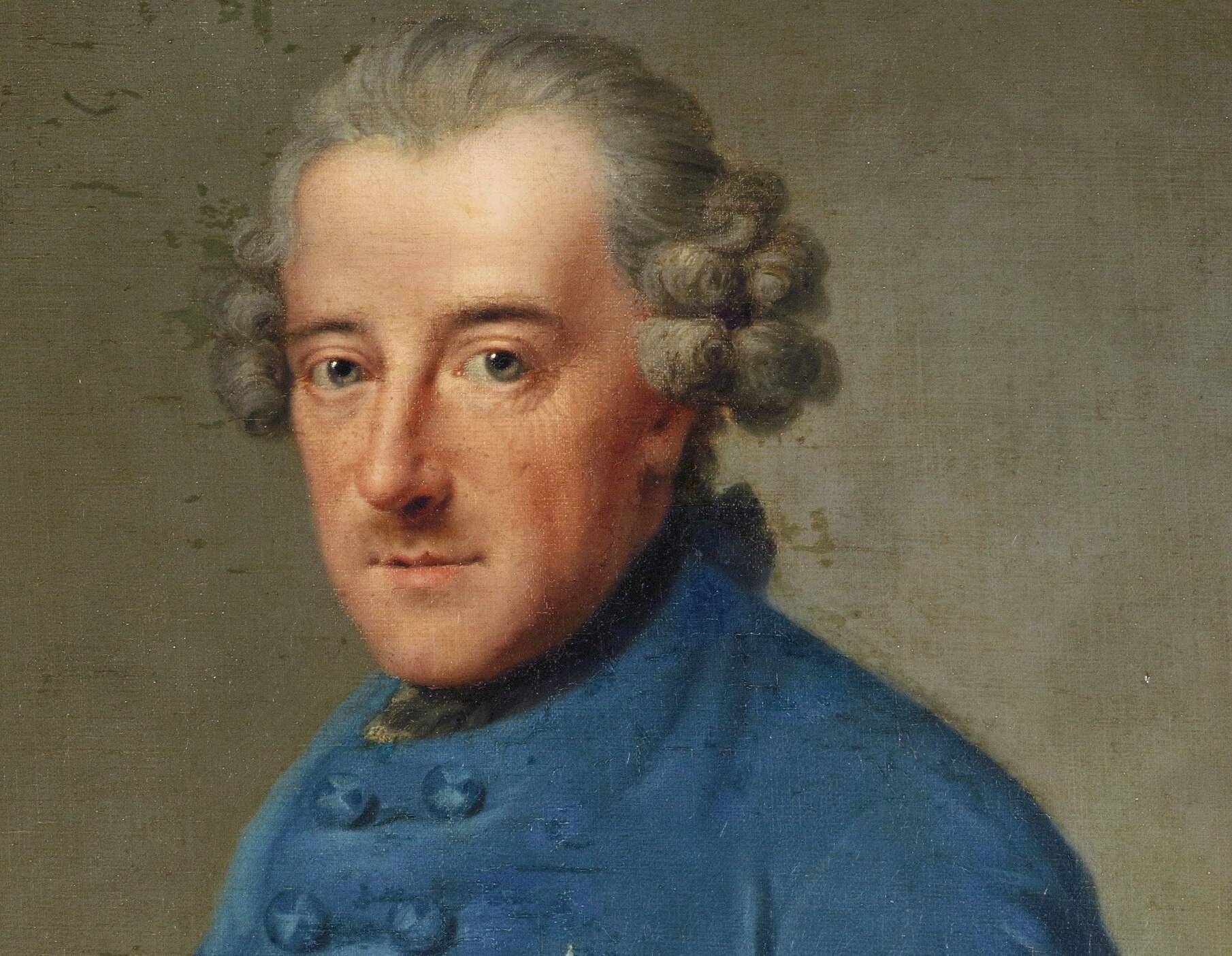 Johann Georg Ziesenis, Wikimedia Commons
Johann Georg Ziesenis, Wikimedia Commons
Greatest Victory: The Battle Of Rossbach
The Battle of Rossbach was quite simply a military triumph. Outnumbered 2 to 1, Frederick used his knowledge of the terrain and advanced maneuvers to completely route the combined forces of France and the Holy Roman Empire, while losing fewer than 200 men himself.
 Antoine Pesne, Wikimedia Commons
Antoine Pesne, Wikimedia Commons
How Did It End?
Frederick grew isolated and difficult in his older years, as asthma, gout, and other ailments wracked his body. However, right to the very end, he got up before dawn and drank six to eight cups of coffee "laced with mustard and peppercorns" a day.
He was found in his armchair early in the morning in 1786 at age 74. He requested to be buried next to his greyhounds.
 Unknown Author, Wikimedia Commons
Unknown Author, Wikimedia Commons
Attila The Hun
People in Rome called Attila the Hun Flagellum Dei, or "the Scourge of God," and he put the final nail in the coffin of the Western Roman Empire. Nearly undefeated in battle, Attila was famous both for his brilliance and his brutality.
How Did He Fight?
The Huns, like many steppe nomads, focused mainly on mobility and guerilla tactics, avoiding a pitched battle whenever possible. But Attila still managed to defeated the Romans in open conflict many times, forcing Rome to pay humiliating yearly tributes.
How Did It End?
Rome stopped paying the tribute in 453 AD, and Attila was preparing to invade once more when he suffered a severe bleeding attack at a banquet and died. It's most likely he suffered a medical episode, though some suggested his wife was behind it.
Julius Caesar
The greatest military leader Rome had ever seen, Julius Caesar's military exploits gained him so much influence that he was proclaimed "Dictator for Life" of the Eternal city. But when you live by the sword, "Life" might not be as long as you'd hope.
Greatest Victory: The Battle Of Alesia
Julius Caesar's brilliance lay in organization and preparation, and nowhere was that more clear than the Battle of Alesia. He trapped revolting Gauls by building a ring-shaped fort around an entire city, with over 25 miles of of fortifications in total. But this fort had something special.
He Built A Ring
Caesar's fortifications had walls on the inside to trap in their victims, and walls on the outside to keep Gallic reinforcements from interfering. It worked like a charm.
They Had To Abandon Their Allies
Although a massive Gallic army came to break the siege, and Gauls made a coordinated attack against the Roman camp from both sides, they just couldn't break through. The relieving army was forced to melt away, leaving their compatriots inside to surrender or starve to death.
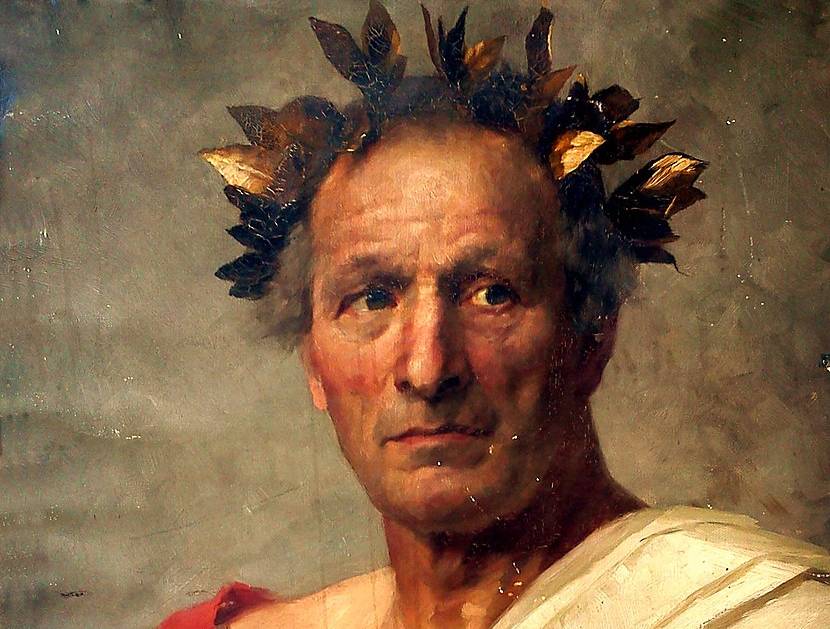 Clara Grosch, Wikimedia Commons
Clara Grosch, Wikimedia Commons
How Did It End?
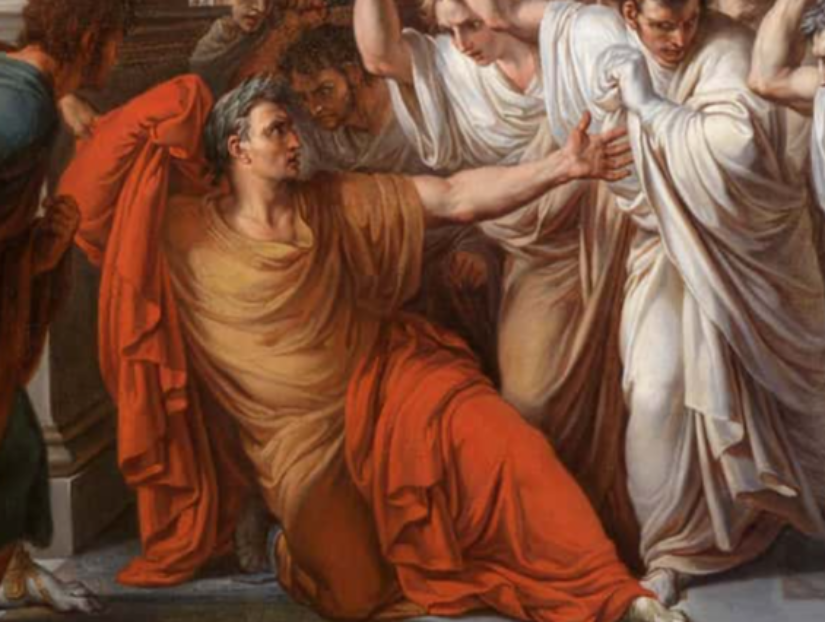 Vincenzo Camuccini, Wikimedia Commons
Vincenzo Camuccini, Wikimedia Commons
Admiral Horatio Nelson
Horatio Nelson brought a unique combination of compassion for his men, tactical brilliance, and unconventional strategies to naval battlefields in the 18th century, and his devious victories during the Napoleonic Wars ensured that the British Empire would enjoy naval superiority for over a century.
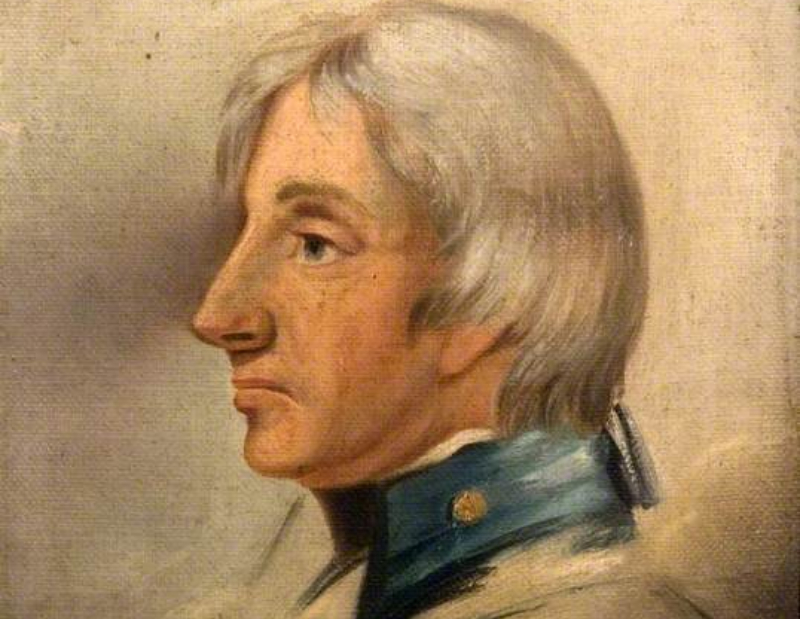 Simon de Koster,Wikimedia Commons
Simon de Koster,Wikimedia Commons
Greatest Victory: The Battle Of Trafalgar
Very few people ever managed to make Napoleon Bonaparte turn back—but Horatio Nelson was one of them. Napoleon sent the allied French and Spanish navies to control take control of the English Channel, and Horatio brought the British fleet to meet them off the Cape of Trafalgar in Spain.
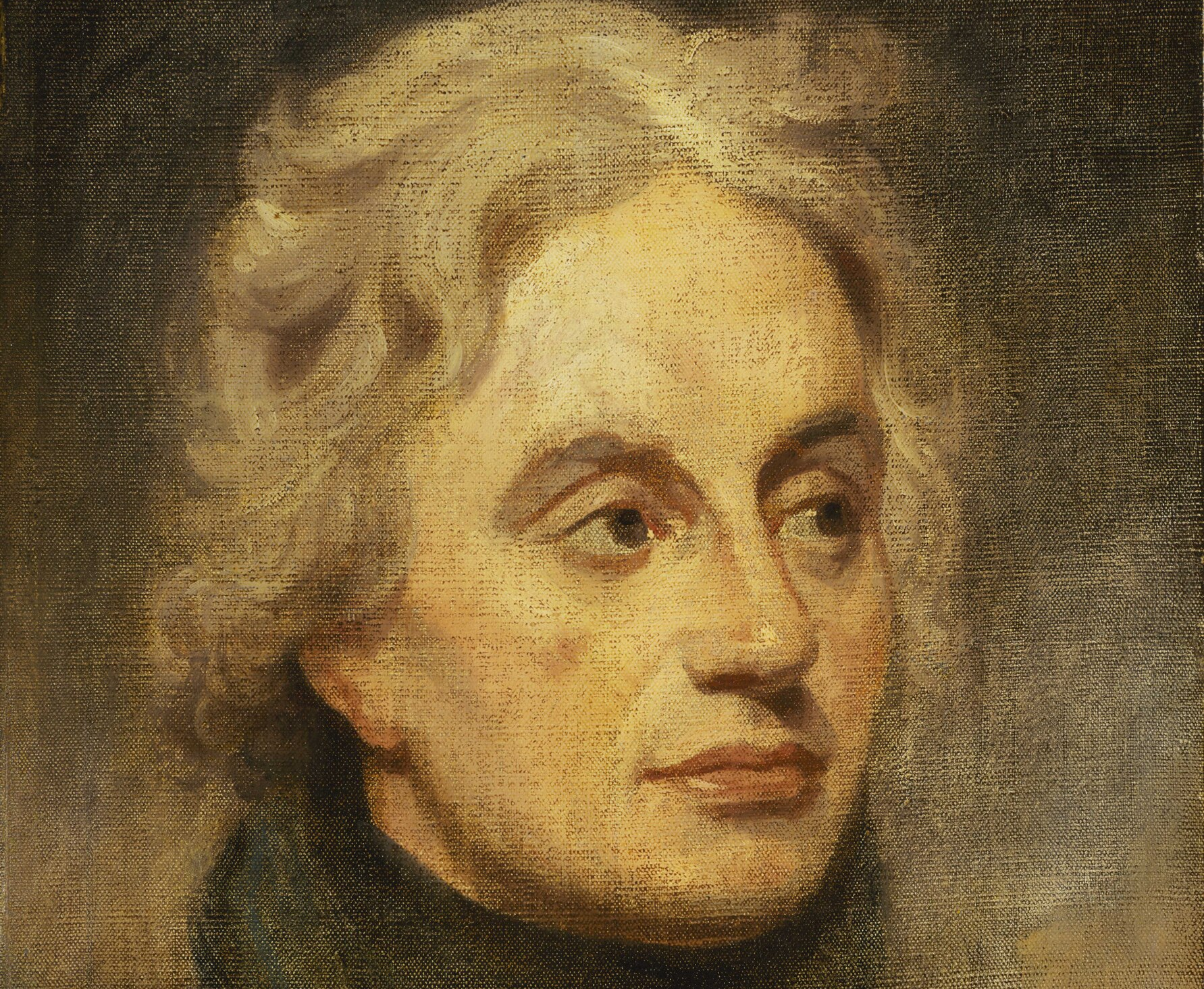 William Beechey, Wikimedia Commons
William Beechey, Wikimedia Commons
He Charged For The Center
Nelson was both outnumbered and outgunned (he had nothing that could match the 112-gun Spanish galleon La Real). His strategy? Charge right through them. He managed to break off a smaller fleet, which he then completely annihilated. The Allies lost more then 20 ships. Nelson lost 0.
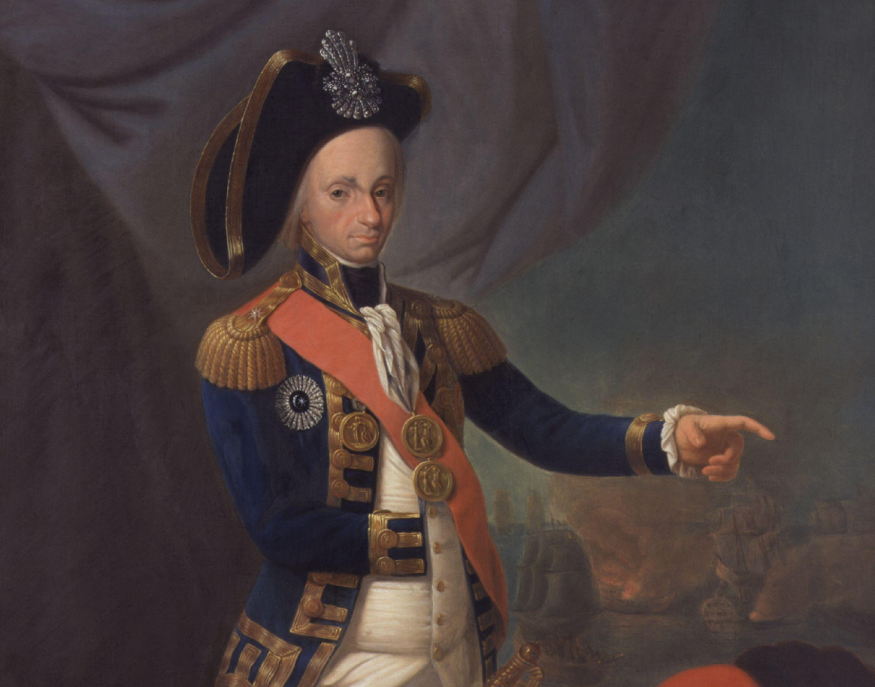 Luigi Acquarone, Wikimedia Commons
Luigi Acquarone, Wikimedia Commons
How Did It End?
Horatio Nelson's greatest triumph also cost him his life. Present at Trafalgar aboard his flagship, the HMS Victory, a French sharpshooter spotted him and aimed true. He survived for three hours before murmuring his final words, "God and my country".
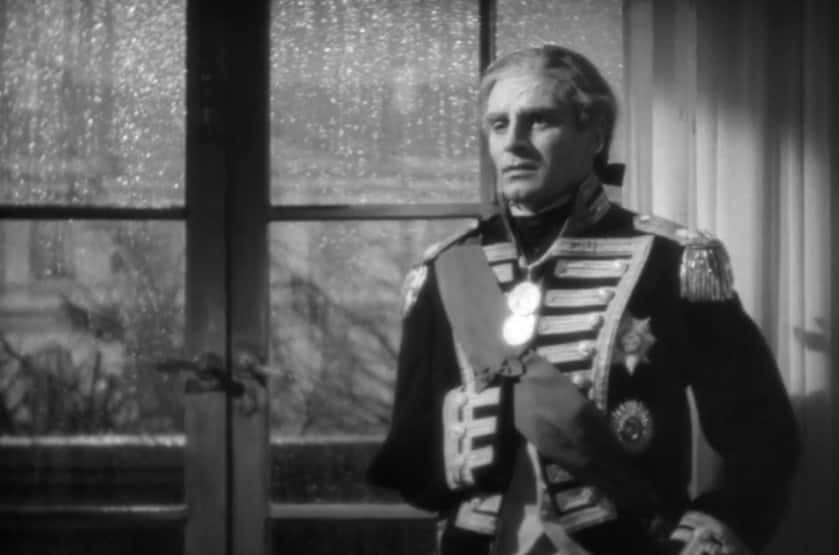 United Artists, That Hamilton Woman (1941)
United Artists, That Hamilton Woman (1941)
Belisarius
They call the Byzantine Emperor Justinian I "Justinian the Great" because he reconquered much of the Western Roman Empire after many territories—including Rome itself—had fallen to barbarian tribes.
But behind nearly all of Justinian's greatest military accomplishments was his general Belisarius, who made a habit of winning against all odds.
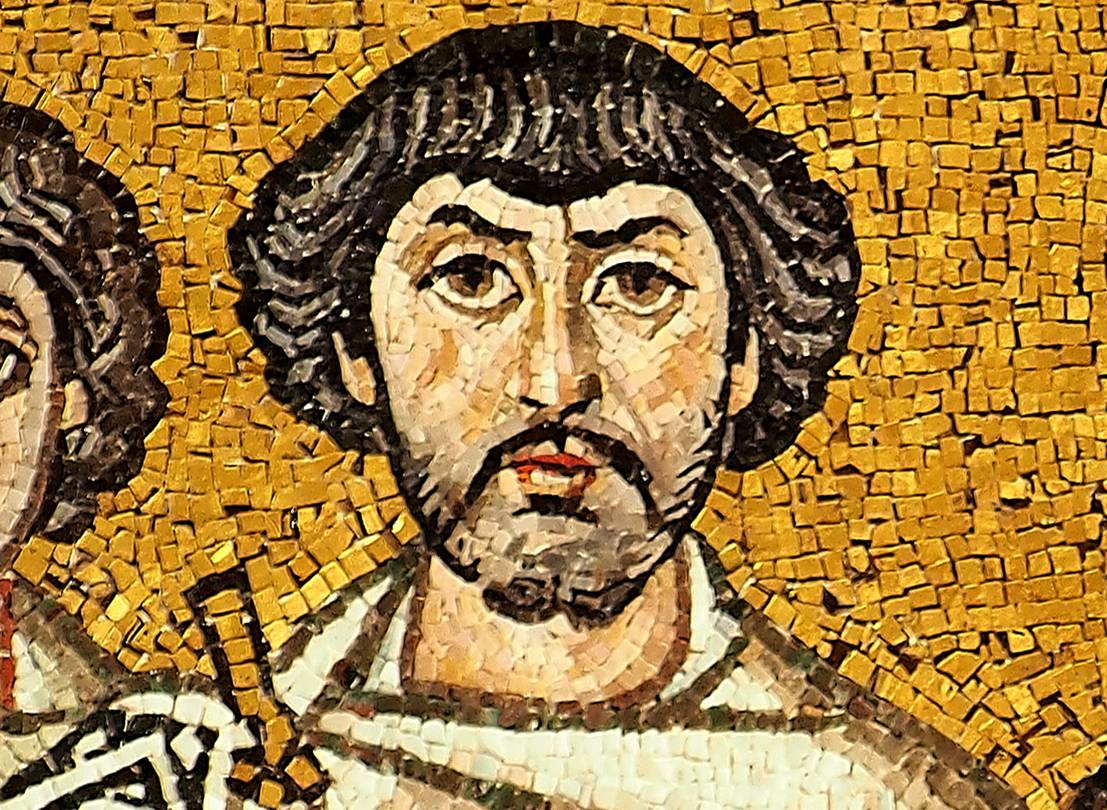 Petar Milošević, CC BY-SA 4.0 , Wikimedia Commons
Petar Milošević, CC BY-SA 4.0 , Wikimedia Commons
Greatest Victory: The Battle Of Dara
The Persian force that Belisarius faced at the Battle of Dara outnumbered his two-to-one. Belisarius placed himself at the center of the battlefield on a hill to survey the fighting and reinforce when needed. At a key turning point in the battle, he led a crucial counterattack that split a large contingent of Persian Immortals in two.
The Byzantines annihilated one group, then the other, emerging with a total victory despite the odds.
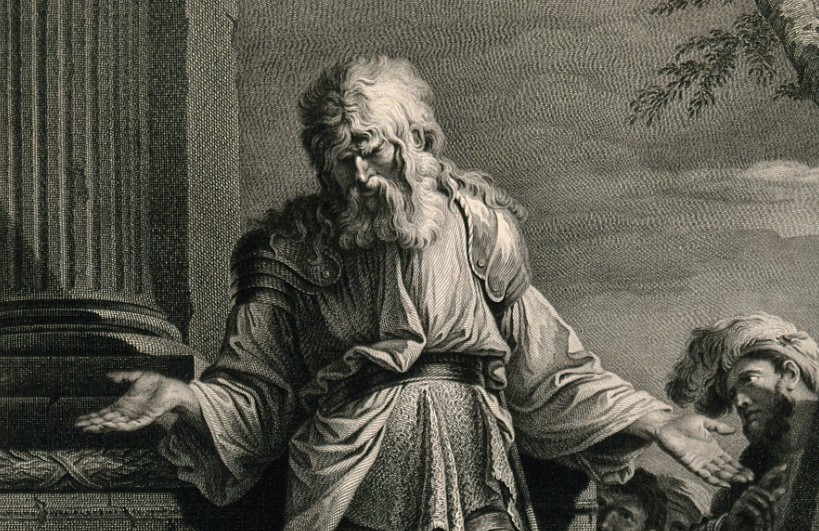 Robert Strange, CC BY 4.0, Wikimedia Commons
Robert Strange, CC BY 4.0, Wikimedia Commons
How Did It End?
Belisarius was one of the odd military geniuses who just faded away. Though he was tried for treason and locked up, his old pal Justinian eventually threw a pardon his way and let him retire in peace, where he died of natural causes in 565 AD—the same year as Justinian himself.
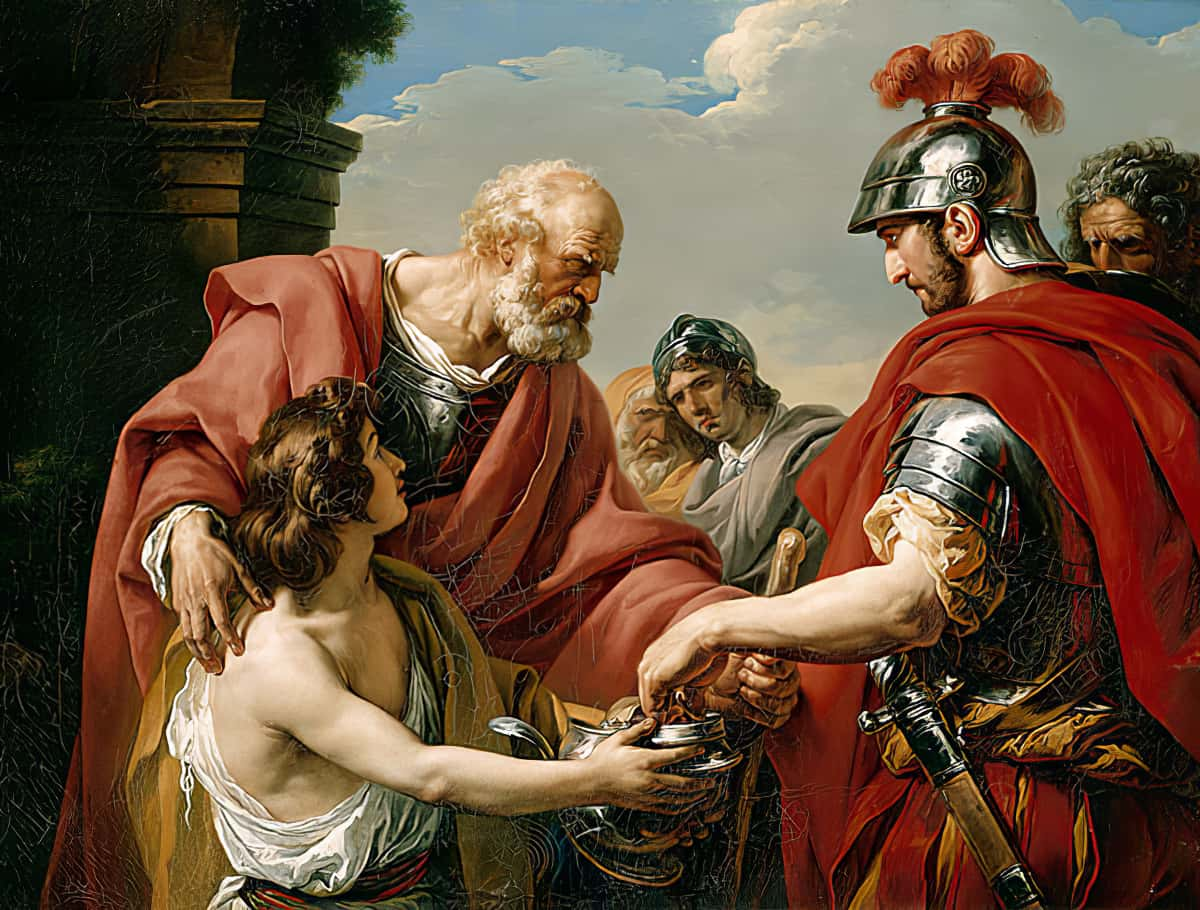 François-André Vincent, Wikimedia Commons
François-André Vincent, Wikimedia Commons
George S. Patton
George S. Patton cut his teeth with a tank division in WWI, and his entry in the European theatre marked a major turning point in WWII.
His domineering personality, decisive action, and intimate knowledge of armored warfare—he took part in the first-ever US military operation using motorized vehicles in 1916—are what made him one of the greatest military geniuses ever.
Greatest Victory: The Battle Of The Bulge
In December 1944, the Germans had concentrated 250,000 men at a weak point on the Allied line, the beginning of the Battle of the Bulge, the last major German offensive of WWII.
Patton's Third Army was busy with heavy fighting many miles away. Not even Patton's fellow commanders like Dwight Eisenhower thought his men could disengage and get to the Bulge in time to provide reinforcement—but they didn't know who they were dealing with.
 Robert F. Cranston, Wikimedia Commons
Robert F. Cranston, Wikimedia Commons
He Only Needed Two Words
Patton's intelligence and logistical networks were so well-prepared, he only had to utter two words to get six full divisions disengaged and redirected to the Bulge: "Play ball".
How Did It End?
George S. Patton was a brilliant commander, but he skirted controversy at every turn. He was relieved of command when he slapped two men with PTSD because he didn't believe it was real. He boasted about his relationship with his niece. And it gets worse.
But before more controversy could ignite, Patton broke his neck in a car accident and succumbed to a pulmonary edema and heart failure 12 days later. He reportedly said, "This is a hell of a way to die".
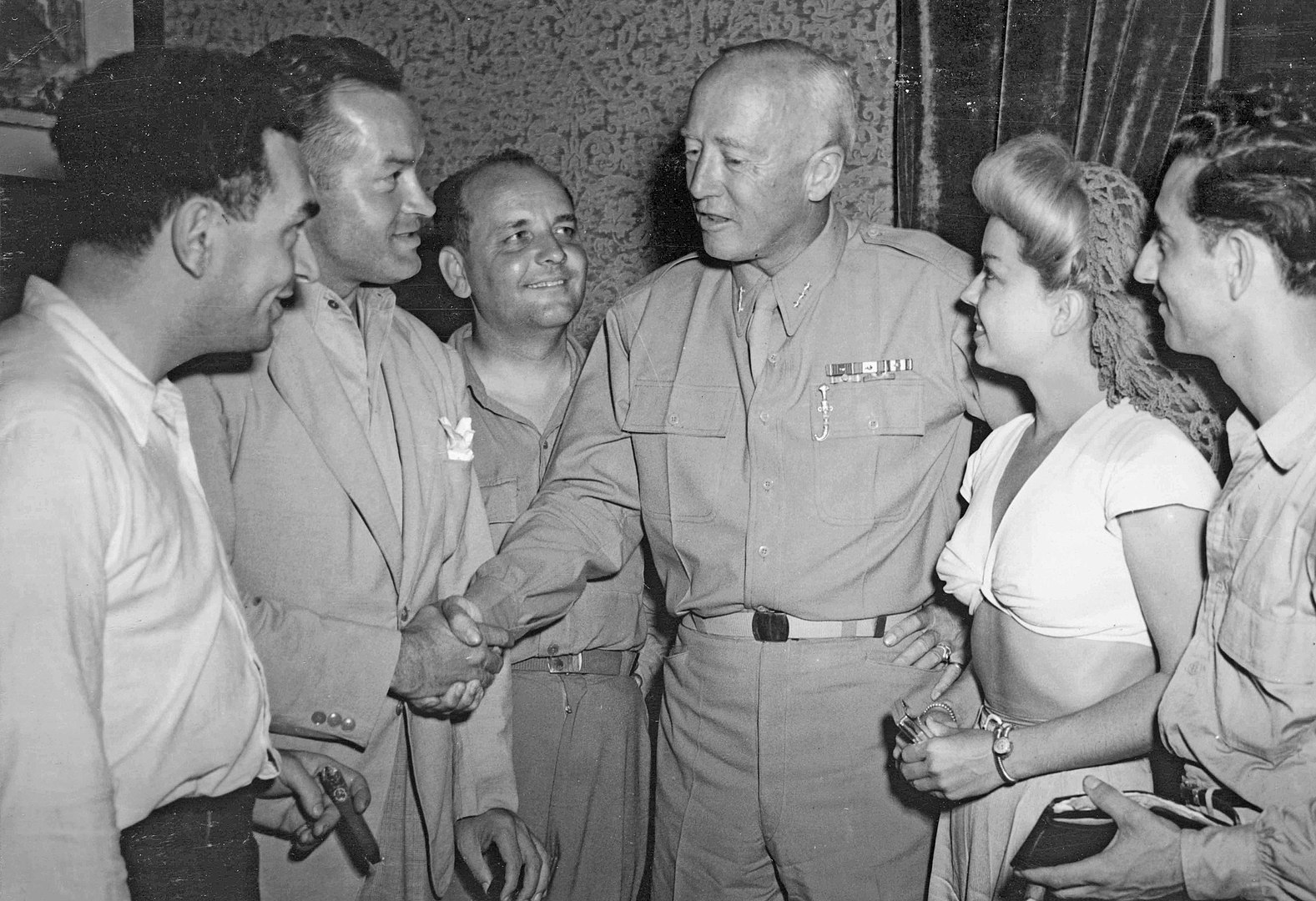 George S. Patton, Wikimedia Commons
George S. Patton, Wikimedia Commons
Saladin
Even though the Crusaders despised the Muslim Saracens they fought against in the Holy Land, they couldn't help but admire Saladin.
Through charisma, tenacity, and brilliant tactics, Saladin united the Muslim world against the Crusaders of Europe, became the first-ever Sultan of both Egypt and Syria, and founded the Ayyubid Dynasty.
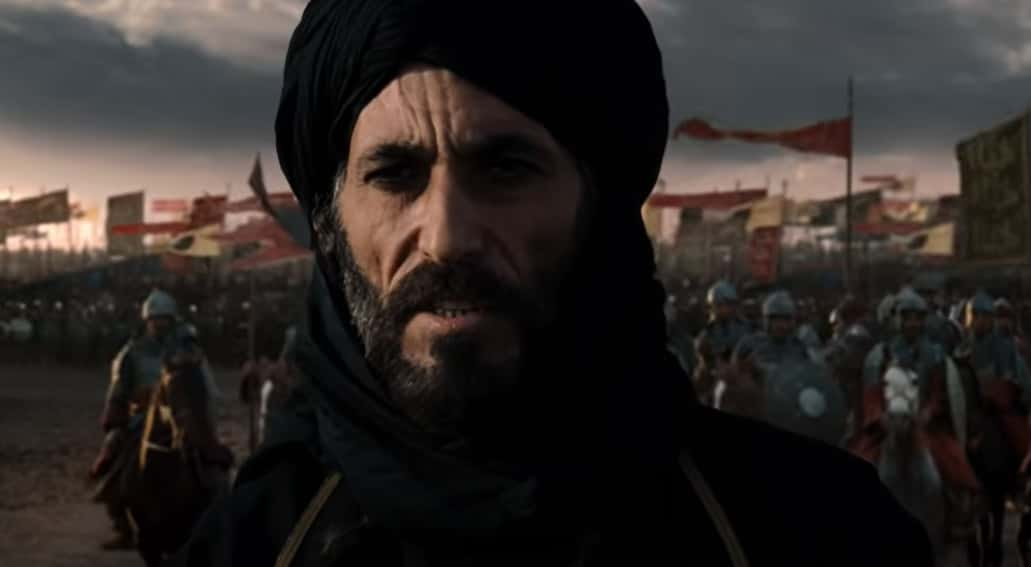 Twentieth Century, Kingdom of Heaven (2005)
Twentieth Century, Kingdom of Heaven (2005)
Greatest Victory: The Battle Of Hattin
After the First Crusade, Europeans ruled the Christian Kingdom of Jerusalem for nearly 200 years—until the Battle of Hattin.
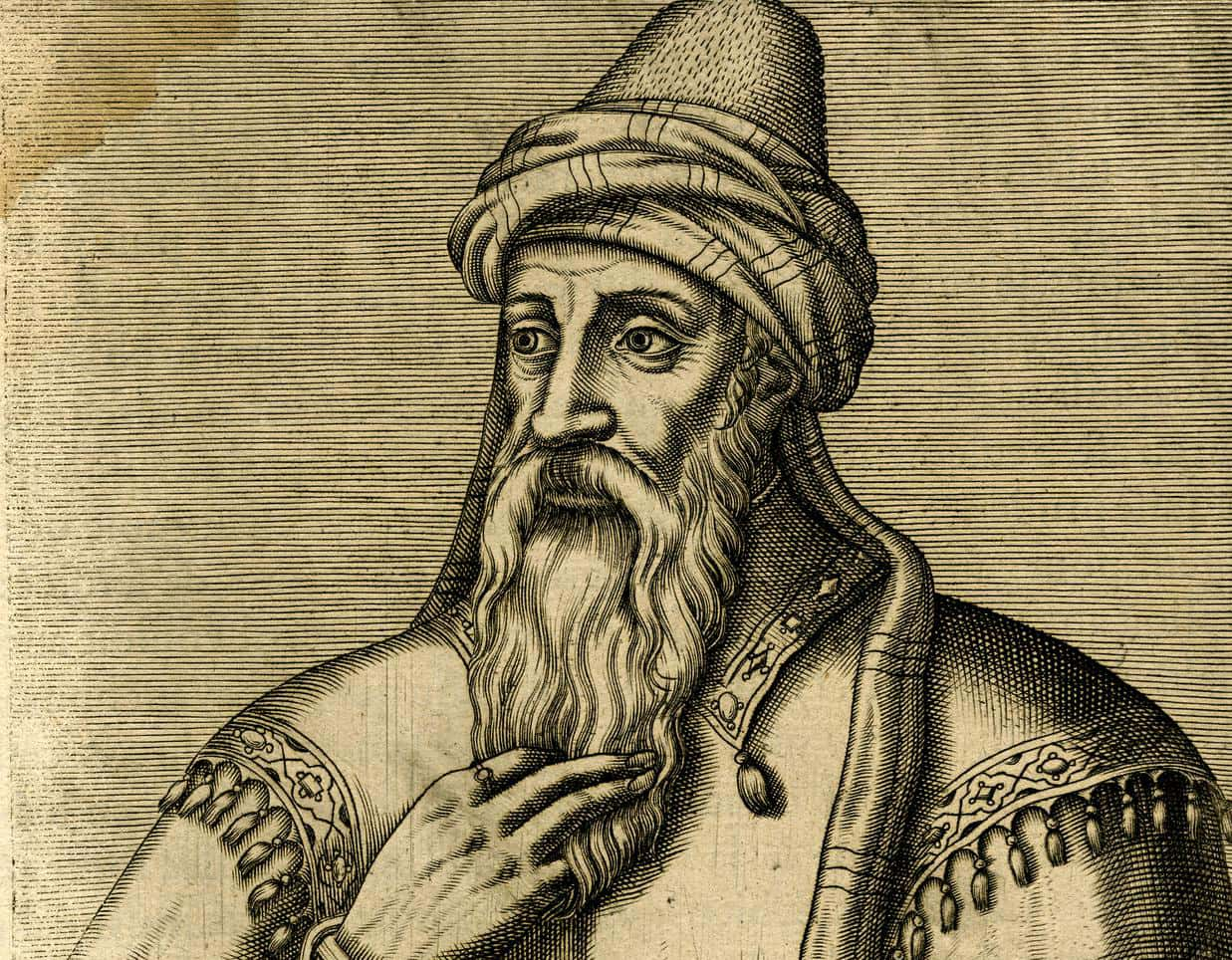 Теве, Андре, Wikimedia Commons
Теве, Андре, Wikimedia Commons
He Played Them Like A Fiddle
Saladin played his enemy like a fiddle, taunting them and drawing them out into the desert where their powerful armor was a hindrance instead of a help. Then, when the Christians split their force up, Saladin swept in and wiped them out.
He reconquered Jerusalem under an Islamic banner once more, and set off the Third Crusade.
 Twentieth Century, Kingdom of Heaven (2005)
Twentieth Century, Kingdom of Heaven (2005)
How Did It End?
The Third Crusade, led by Richard the Lionheart, took up the rest of Saladin's life. Not long after Richard finally abandoned the Holy Land in 1192, Saladin came down with a fever and died.
He had already given away all of his wealth, so there was nothing left for a funeral.
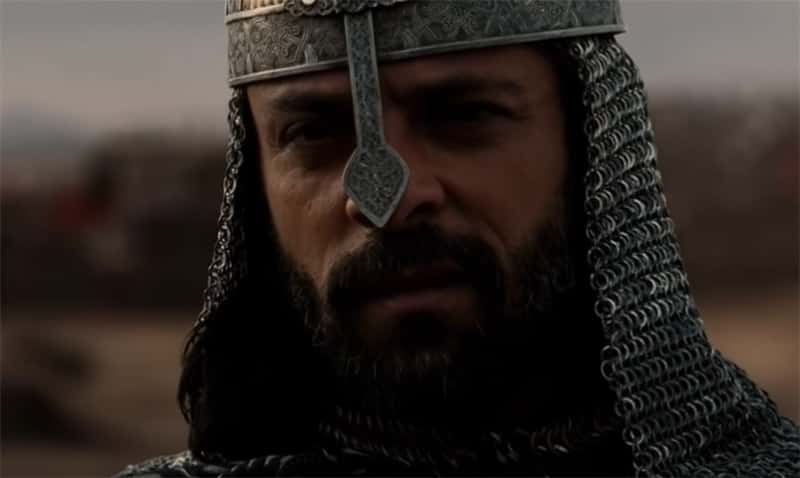 Twentieth Century, Kingdom of Heaven (2005)
Twentieth Century, Kingdom of Heaven (2005)
Themistocles
Themistocles was a populist whom the people of Athens adored—and the elites despised. Well, no one was questioning Themistocles' push for militarization and a strong navy when the Persian Empire decided to invade.
Themistocles's influence had prepared Athens and her allies for this moment—and he proved he could do more than talk a big game.
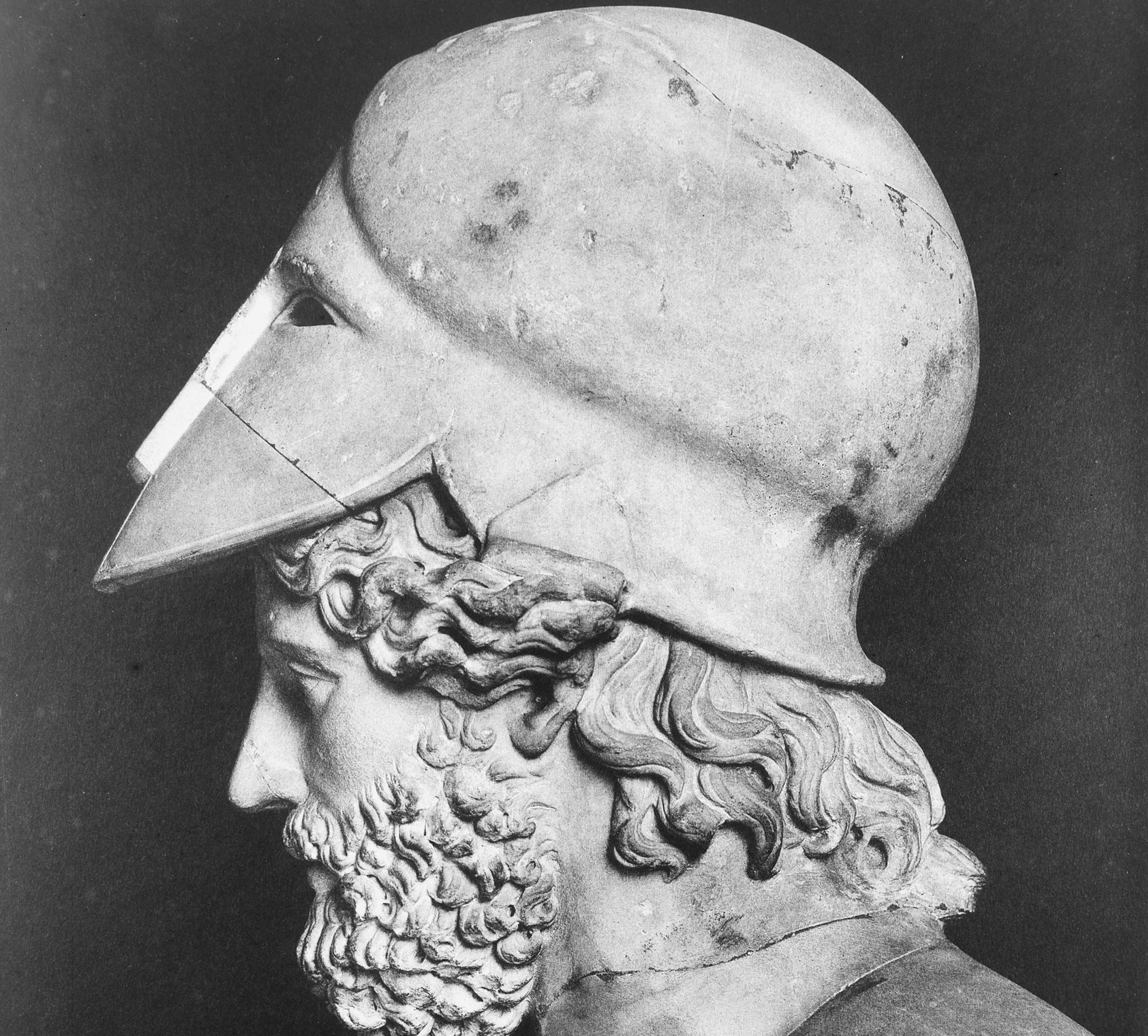 Johannes Petrus Albertus Antonietti , CC BY-SA 4.0 , Wikimedia Commons
Johannes Petrus Albertus Antonietti , CC BY-SA 4.0 , Wikimedia Commons
Greatest Victory: The Battle Of Salamis
Themistocles was present at some of the most legendary battles in history, like Marathon and Artemisium, but his greatest tour de force was at Salamis. Themistocles lured the much-larger Persian navy into the narrow Straits of Salamis—where he and the other greeks were waiting.
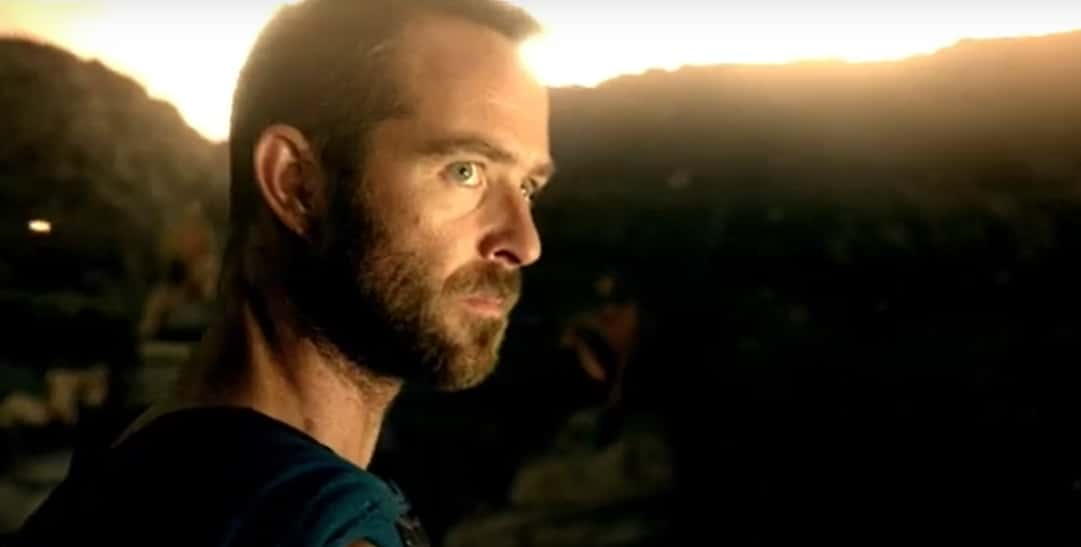 Warner Bros., 300: Rise of an Empire(2014)
Warner Bros., 300: Rise of an Empire(2014)
He Ended The Invasion
The Persians ended up losing 300 ships to the Greeks' 40 at Salamis, the largest naval battle ever at the time. Xerxes abandoned the invasion after the disaster, and all Persian intrusions soon petered out.
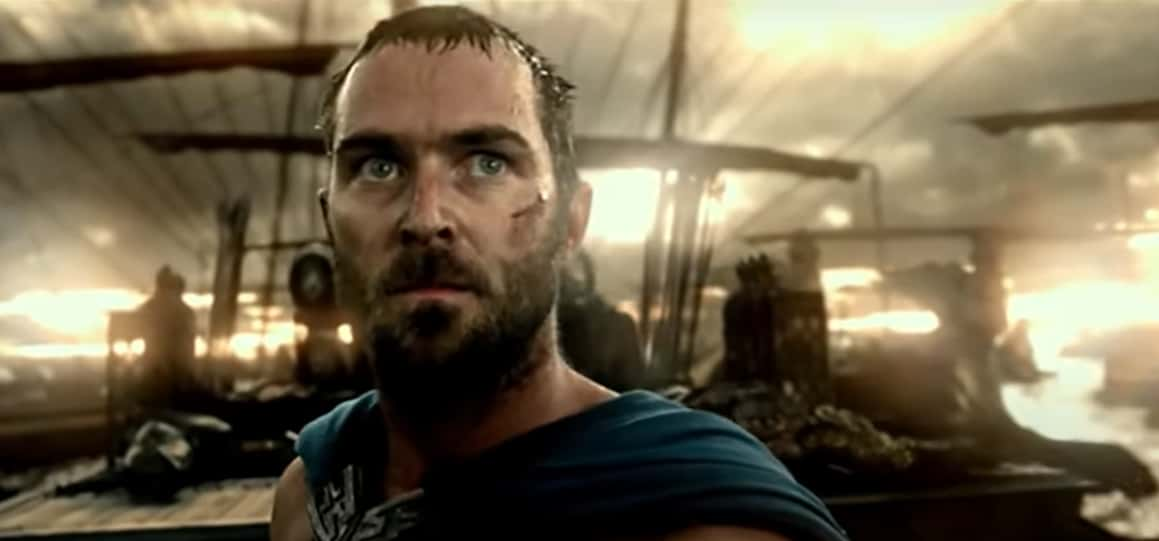 Warner Bros., 300: Rise of an Empire(2014)
Warner Bros., 300: Rise of an Empire(2014)
How Did It End?
Themistocles made a lot of enemies during his rise to power—and they were just waiting for their opportunity. He was eventually exiled to the same Persian Empire he defeated, where he passed peacefully at the age of 65.
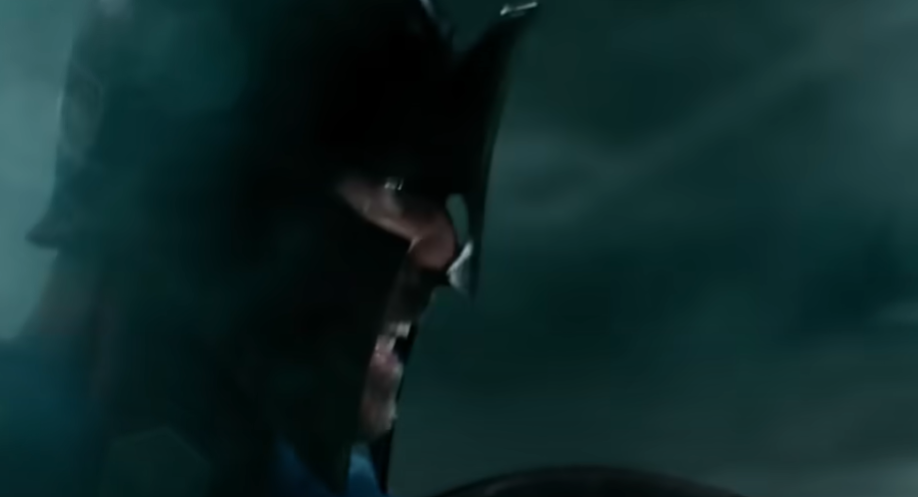 Warner Bros., 300: Rise of an Empire(2014)
Warner Bros., 300: Rise of an Empire(2014)
Philip II
King Philip II of Macedon walked so that his son Alexander could run. The King of Macedonia, Philip implemented the use of the legendary phalanx and sarissa that Alexander would use to build the biggest empire the world had ever seen.
Before that, though, Philip used these innovations to force all of Greece to unite under his banner—something that no one had ever managed to do before.
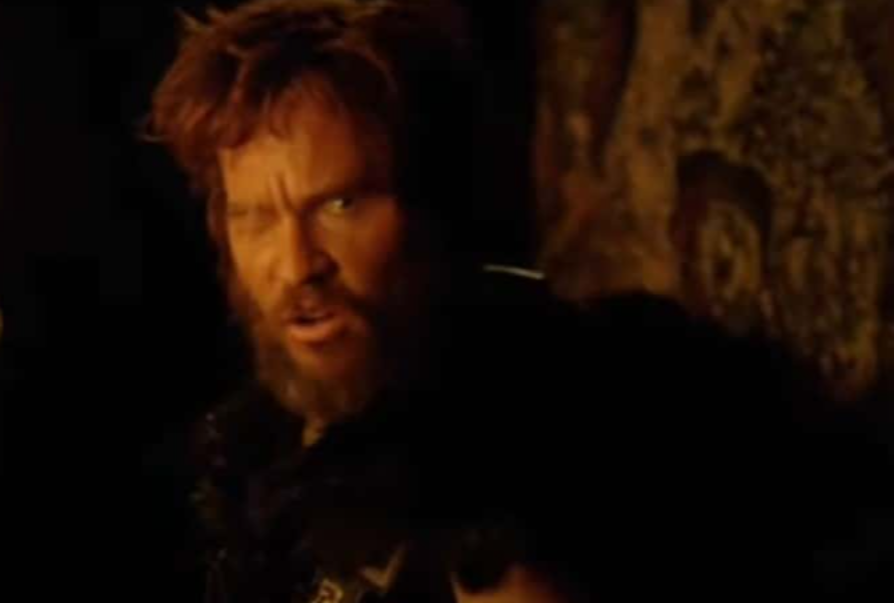 Warner Bros., Alexander (2004)
Warner Bros., Alexander (2004)
Greatest Victory: Battle of Chaeronea
It wasn't easy to get the Greek city-states to put down their squabbling—but anyone who saw the Battle of Chaeronea knew that Philip was not someone you wanted to fight.
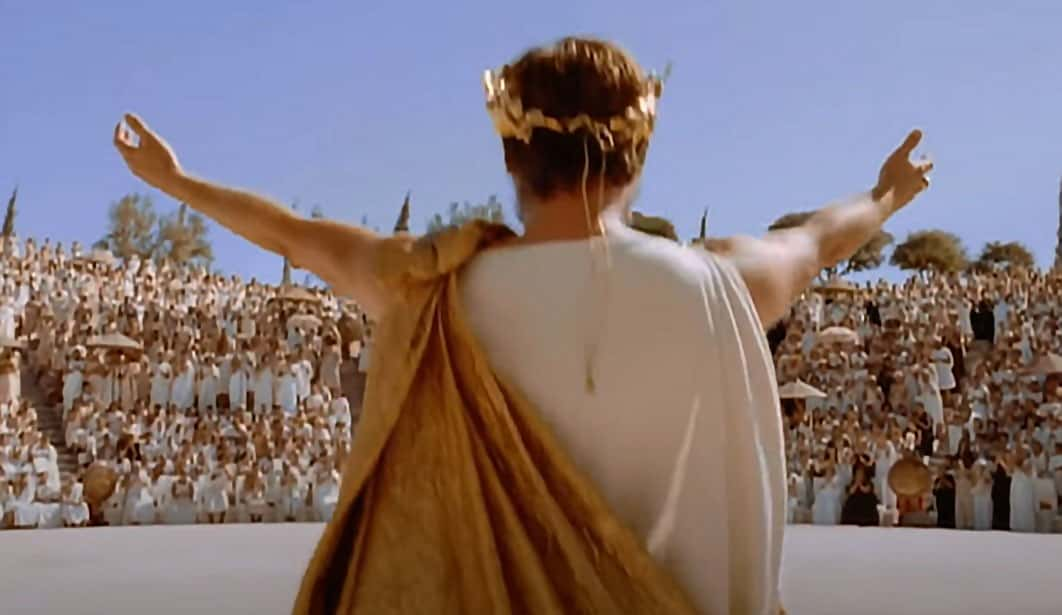 Warner Bros., Alexander (2004),
Warner Bros., Alexander (2004),
They Didn't Stand A Chance
Philip's elite forces completely wiped out the alliance of Thebes and Athens in what's considered the most one-sided battle in the ancient world. After that, everyone bent the knee rather than try their luck against Philip's phalanx.
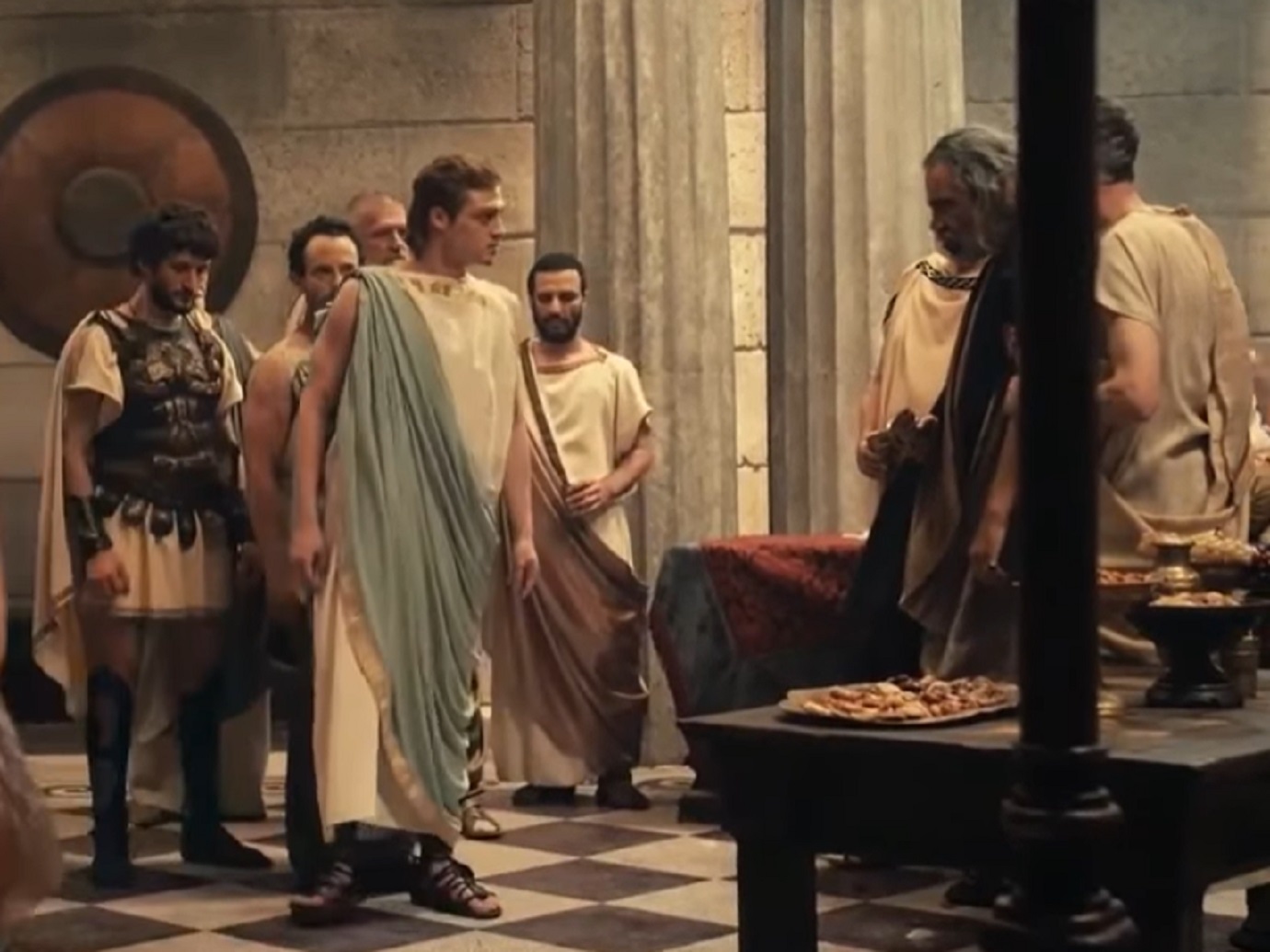 Gruppe 5, Alexander the Great (2014)
Gruppe 5, Alexander the Great (2014)
How Did It End?
Philip II had plans to invade the Persian Empire as revenge for their invasion centuries earlier—but Macedonian politics meant no one was safe. While celebrating his daughter's wedding before the impending invasion, his own bodyguard assassinated him.
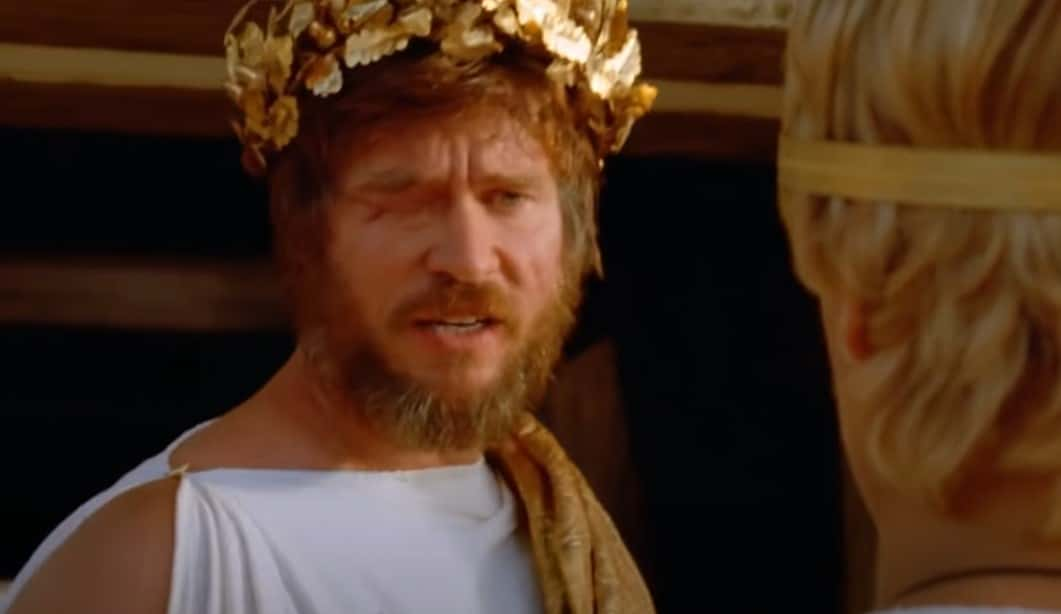 Warner Bros., Alexander (2004)
Warner Bros., Alexander (2004)
Georgy Zhukov
Born to a poor peasant family, Georgy Zhukov was conscripted into the Imperial Russian Army when he was 19—and eventually rose to become Commander of the Red Army during WWII. But he wasn't just a feel-good story of upward mobility—he was the only man for the job.
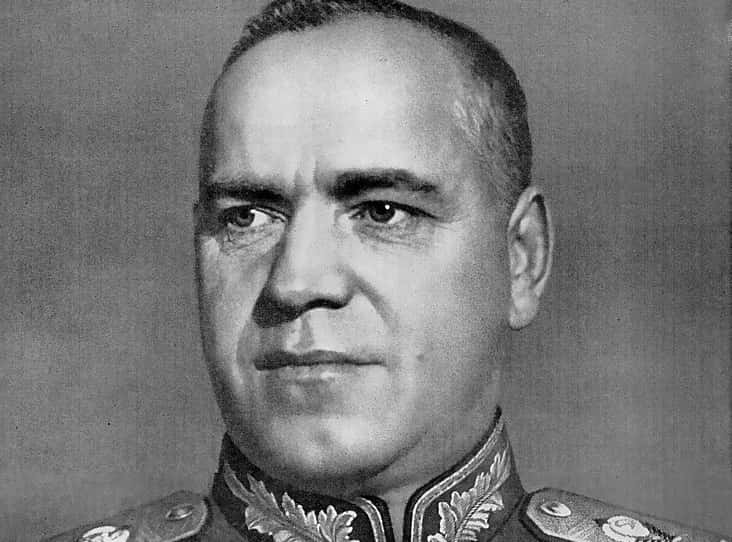 Grigory Vayl, Wikimedia Commons
Grigory Vayl, Wikimedia Commons
He Had The Most Difficult Job
Zhukov had to manage both the enormous and woefully under-equipped Red Army and the dangerous political environment around Soviet leader Joseph Stalin—yet he managed both brilliantly and gave the Russians some of their greatest victories in WWII.
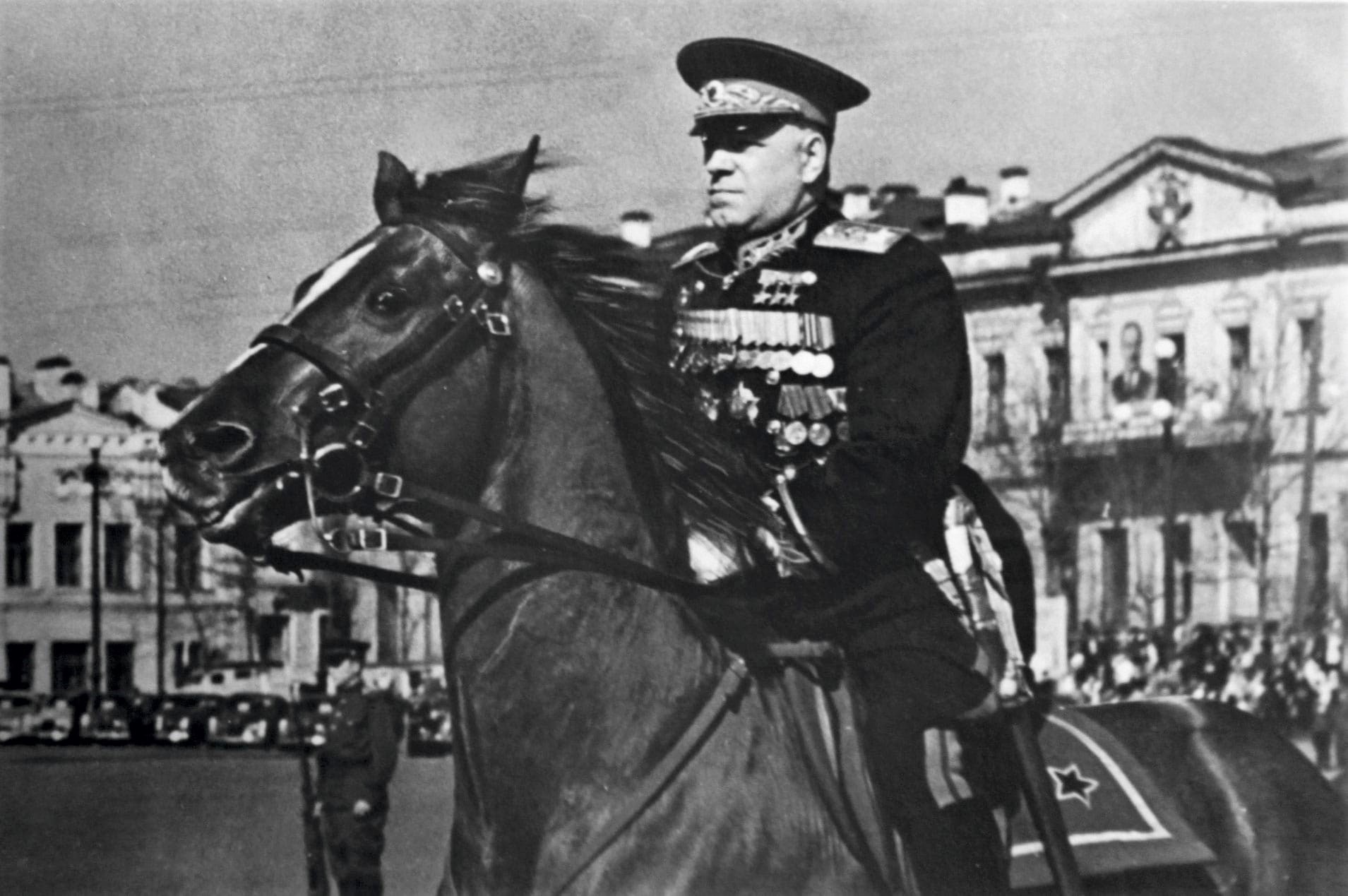 Mil.ru, CC BY 4.0, Wikimedia Commons
Mil.ru, CC BY 4.0, Wikimedia Commons
Greatest Victory: The Battles Of Kursk And Stalingrad
The battles of Kursk and Stalingrad are, by any measure, the largest battles in the history of warfare—and Georgy Zhukov was the Russian commander at both.
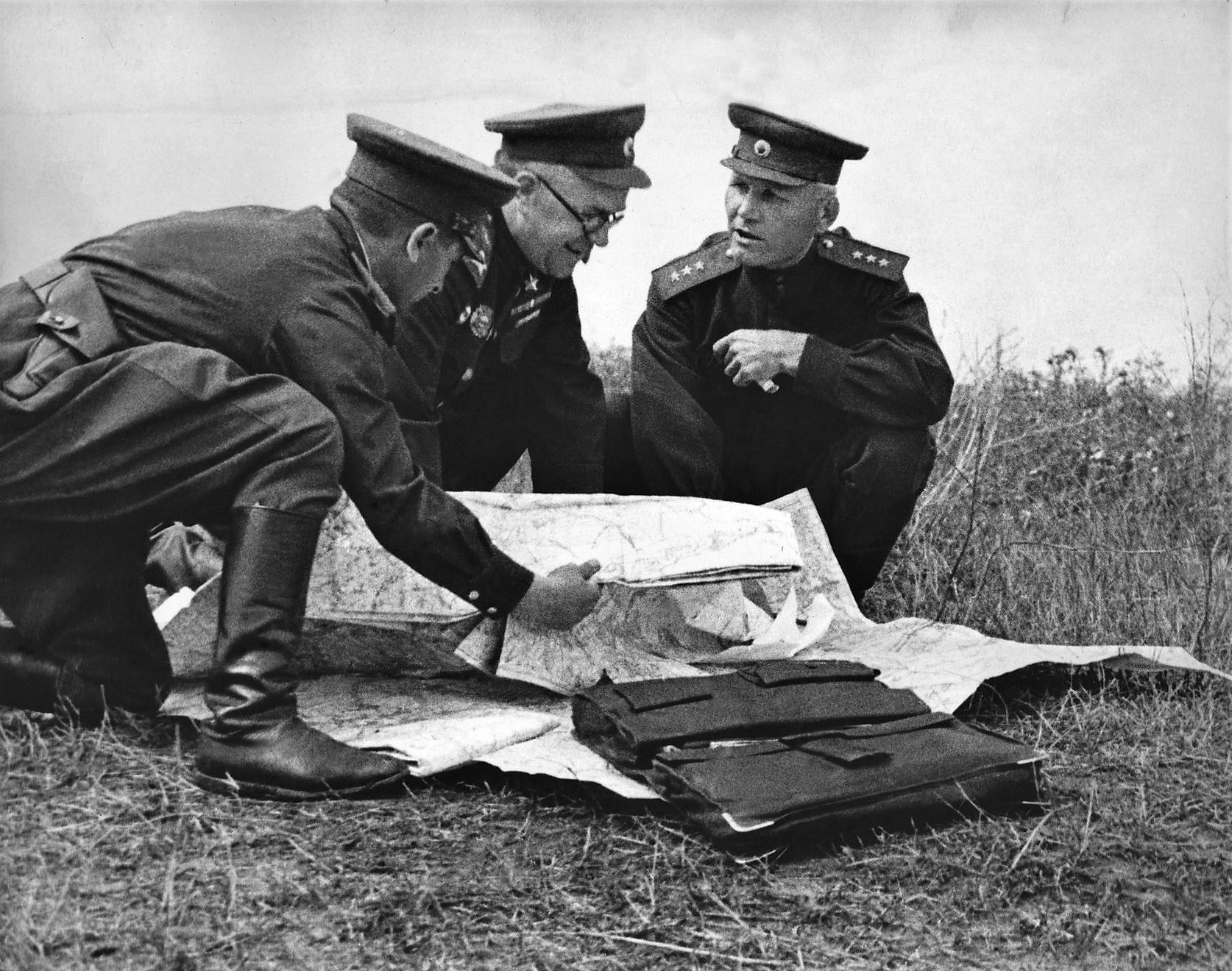 Mil.ru, CC BY 4.0, Wikimedia Commons
Mil.ru, CC BY 4.0, Wikimedia Commons
He Won The Worst Battles Of All Time
It wasn't pretty—in fact they were also two of the bloodiest battles in history—but Zhukov used every advantage he had to overcome the technologically superior Germans.
Most historians consider KursK and Stalingrad to be crucial turning points in WWII. They were the beginning of the end.
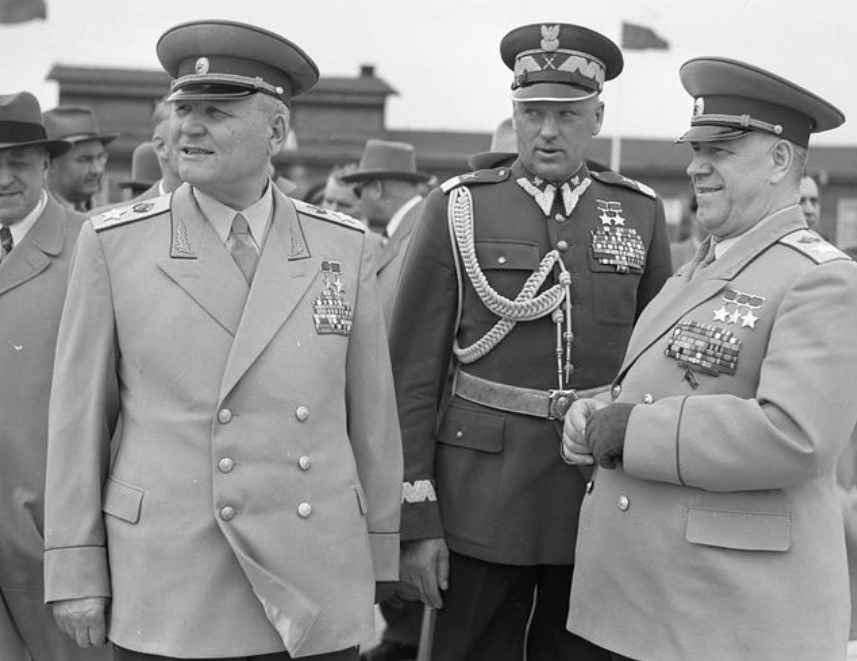 Unknown Author, Wikimedia Commons
Unknown Author, Wikimedia Commons
How Did It End?
The Soviets eventually forced Zhukov out of politics—he was too popular and too hard to control—and he was happy for the chance at retirement. He apparently spent most of his time fishing and entertaining visitors before succumbing to a stroke in 1974.

